- Ghibli’s Grand Warehouse and Ticket Basic Information
- Ghibli’s Grand Warehouse Tickets and Admission Hours
- Model course of 9 recommended spots in “Ghibli’s Grand Warehouse”
- Entrance to the “Ghibli’s Grand Warehouse”
- #01 Central staircase of Ghibli’s Grand Warehouse
- #2 Becoming Characters in Memorable Ghibli Scenes
- Memorable Ghibli Scenes is a popular spot
- Memorable Ghibli Scenes exhibits 14 scenes from 13 films
- Fighting with Porco Rosso | Porco Rosso
- No Face | Spilited Away
- Newspaper club of the Archaeological Society | From Up on Poppy Hill
- Raccoons’ strategy meeting | Pom Poko
- 2 Scenes from Becoming Pazoo | Laputa: Castle in the Sky
- Pazoo receiving Sita
- Mechanical airmen, Theta, and Dora
- Red field in the mountains | Only Yesterday
- Encounter with Ricaco at Kichijoji Station | The Ocean Waves
- The Cherry Tree | The Tale of the Princess Kaguya
- The Wrath of Theroux | Tales from Earthsea
- Ponyo Running on the Sea | Ponyo on the Cliff
- Returning the Head | Princess Mononoke
- Jiro Horikoshi | The Wind Rises
- Marnie Standing on the Beach | When Marnie Was There
- #03 “Drawing to eat.”
- #4 Everything Ghibli!
- #5 (Studio Ghibli’s) open warehouse entrance
- #6 Director’s Room
- #7 “Garden in the Sky” with robot soldiers
- #8 Minami-machi
- #9 Arrietty’s little room and the dwarf’s garden
- Cinema Orion
- Catbus Room and Children’s Town
- Shop “Adventurous Flying Squadron”
Ghibli’s Grand Warehouse and Ticket Basic Information
The official website of Ghibli Park describes the “Grand Warehouse of Ghibli” as “The (Studio) Ghibli Grand Exposition.
The essence of Studio Ghibli is packed into the building, which literally resembles a large warehouse, in spots such as the video exhibition room (Orionza), several special exhibitions, a café, and a souvenir store!
Ghibli’s Grand Warehouse” is an attraction to be seen and enjoyed
As you know, Ghibli Park does not have roller coasters or other ride-style attractions like those at Tokyo Disney Resort or Univeral Studio Japan (USJ) in Osaka.
Instead, there are exhibits and facilities that represent the world of Studio Ghibli’s works, and the concept is to immerse yourself in the world of your favorite works. It can be described as a “look and enjoy” attraction.
The exhibits include elaborate recreations of the world of Studio Ghibli’s works and a “Becoming Characters in Memorable Ghibli Scenes” spot where visitors can take commemorative photos with the characters in the works.
For more information on the “Ghibli’s Grand Warehouse,” please refer to the guide to recommended spots below.
Ghibli’s Grand Warehouse Tickets and Admission Hours
Summary of Ghibli’s Grand Warehouse stand-alone admission (until October 2023)
Here are the ticket prices and admission times for “Ghibli’s Grand Warehouse” until October 2023.
Reservations have already been made for the period up to October 2023, and tickets that remain unsold will be available for purchase.
Ticket prices for admission to “Ghibli’s Grand Warehouse”
Prices are divided by weekdays and holidays, and by type of adult and child.
| Adults | Children(age 4 – 12) | Children(age 0 – 3) | |
|---|---|---|---|
| Weekdays | 2,000yen | 1,000yen | Free |
| Weekends and Holidays | 2,500yen | 1,250yen | Free |
Entry and Exit Times
For International Ticket, there are two entrance times: 12:00 PM and 2:00 PM.
Exit time is 17:00 (PM 5:00 p.m.), so there seems to be no problem if you enter earlier and stay longer.
However, the typical stay seems to be 2-3 hours.
We spent about 3 hours even when we visited some spots where we took pictures and looked around again.
As for the entrance time, you can line up before the target time, and you can enter up to one hour before the designated reservation time. In the above example, 12:00 allows admission until 15:00, and 15:00 allows admission until 16:00.
However, please note that the museum closes at 5:00 p.m., so if you enter near 4:00 p.m., you will only be able to enjoy the museum for about an hour.
Overview of tickets for admission to Ghibli’s Grand Warehouse (from November 2023)
Single tickets for Ghibli’s Grand Warehouse will no longer be available, but will be sold as a package with an admission ticket to Mononoke Village.
Many visitors from overseas rarely have the opportunity to visit the park on more than one day, so it is assumed that the package sales are based on the consideration of allowing visitors to enjoy multiple areas at one time.
However, there must be people who want to visit only “Ghibli’s Grand Warehouse” or can only visit one area due to time constraints, so I honestly wish they would have left the “Ghibli’s Grand Warehouse” ticket as a stand-alone ticket.
I wish they would consider selling single tickets for “Mononoke Village” because of its initial popularity (i.e., high price).
Ticket prices for admission to “Ghibli’s Grand Warehouse” and “Mononoke Village”
Package tickets for “Ghibli’s Grand Warehouse” and “Mononoke Village” are about 500 yen more expensive for adults than single tickets.
| Adults | Children(age 4 – 12) | Children(age 0 – 3) | |
|---|---|---|---|
| Weekdays | 2,500yen | 1,250yen | Free |
| Weekends and Holidays | 3,000yen | 1,500yen | Free |
Entry Times(Entry time is assigned only for Ghibli’s Grand Warehouse.)
Package tickets require all group members to enter “Mononoke Village” by 4:00 p.m. on the day of reservation. Please be considerate of time when traveling.
Things to keep in mind when purchasing tickets
There are a few other things to keep in mind when purchasing tickets to Ghibli’s Grand Warehouse and considering how to get around.
The following URL has some information including temporary information. Please take a look if you like.

Now that you have a general idea of what you need to know about “Ghibli’s Grand Warehouse” tickets and what to look out for, let’s move on to “Ghibli’s Grand Warehouse” tickets and what you need to know about what to do.
Then, I would like to introduce a model course of 11 recommended spots in “Ghibli’s Grand Warehouse”.
Model course of 9 recommended spots in “Ghibli’s Grand Warehouse”
The recommended spots in “Ghibli’s Grand Warehouse” are 9, depending on how you divide them.
It is said that a short tour of “Ghibli’s Grand Warehouse” will take about 2 hours for a short person and about 3 hours for a long person.
Members of this site stayed between 2.5 and 3.5 hours. When we asked their family and friends, they said they stayed for 2 to 3 hours and 30 minutes.
When looking at this description and actually moving through the exhibits, please also refer to the floor plan on the official Ghibli Park website.
Note the entrance time for Mononoke Village ticket purchasers
If you have purchased a single ticket for “Ghibli’s Grand Warehouse,” you can enter either at 12:00 or 2:00 p.m. and still have enough time to see the exhibit, even if you take your time.
On the other hand, if you purchased a package ticket with “Mononoke Village”, you may not be able to fully enjoy the “Mononoke Village” area if you stay in “Ghibli’s Grand Warehouse” for more than 3 hours.
As mentioned above, the distance between “Ghibli’s Grand Warehouse” and “Mononoke Village” is not far, but it takes 6-7 minutes to walk there.
Since the entrance time of “Mononoke Village” is 4:00 p.m. (4:00 p.m.), you may want to consider how long you will stay at “Ghibli’s Grand Warehouse” by calculating backward from the entrance time.
Entrance to the “Ghibli’s Grand Warehouse”
First…the entrance. This one does not count among the nine (^^)
Be prepared to show both paper and electronic tickets immediately at the first checkpoint, and follow the directions to the entrance.
There is a second checkpoint at the entrance of the building. Here you will be given instructions and given a ticket for the “Wolionza,” which will be described later.
From there, go straight ahead and go down the stairs.
The adventure(?) of “Ghibli’s Grand Warehouse” begins!
#01 Central staircase of Ghibli’s Grand Warehouse
First, head for the central staircase of Ghibli’s Grand Warehouse.
At the bottom of the stairs from the entrance, you will find an information desk with blue-green as its basic color.
Friendly ladies will welcome you with a smile.
If you have any questions, this is the place to go. Ask for brochures if necessary.
You can communicate quite well with a translation app.
At the end here, turn left and you will see the central staircase of the first point. This is the spot of the image used in the slideshow on this web site.
With its stunning form and vivid colors, it became a symbolic spot of Ghibli Park in Japan when it opened.
If you enter at 12:00 p.m., you will see the people who entered before you, but it will be a good spot for a commemorative photo.
I recommend that you proceed to the right hand side of the building from the front and look up at the red building and the airship with the spinning propeller to take a picture.
The above image was taken with an iPhoneSE and cropped a little at the top for sizing purposes.
If you take the picture from about 5-6 meters back from the staircase, with the shooting position from bottom to top, both the staircase and the airship will fit.
Find Dust bunnies on mosaic tile benches
Sitting on a bench made of mosaic tiles on the right side of the street is a popular place to take pictures.
You can find “Dust bunnies” on the benches.
#2 Becoming Characters in Memorable Ghibli Scenes
From the central staircase, go back a little to the entrance to the “Becoming Characters in Memorable Ghibli Scenes” area.
In my opinion, this is the main exhibit in Ghibli’s Grand Warehouse.
The purpose of this exhibit is to allow visitors to step into a scene from a Studio Ghibli film and become a character from the film.
This does not count as 14 exhibits, but it is quite popular and everyone is capturing their family and friends as the characters on their cameras (iPhones?).
That’s right. This exhibit is for people to enjoy taking pictures with their friends, pretending to be characters from Studio Ghibli’s works.
Memorable Ghibli Scenes is a popular spot
With admission starting at 12:00 pm, I am sure many people are already lined up.
If you want to see something first because you can’t wait, go to #06, “The Fake Curator’s Office! If you want to see something first because you can’t wait, go to #06, “The Fake Curator’s Office”.
This is a popular spot, so if you enter at 12:00 p.m., expect to spend about an hour waiting in line.
Although there are many people waiting in line from the time the museum opens, the line may be shorter at 17:00, when the museum closes.
Memorable Ghibli Scenes exhibits 14 scenes from 13 films
After standing in line, visitors enter the red building and are greeted by a “Spilited Away” train conductor in front of the building.
Visitors are invited to stand next to, above, or below the characters of each film and pose for photographs of them as they see fit.
There are 13 works featured in “Becoming Characters in Memorable Ghibli Scenes” and as many as 14 exhibits.
Here we introduce all of them.
Fighting with Porco Rosso | Porco Rosso
After greeting the conductor and proceeding inside, you will see the “Red Pig” exhibit.
The scene where the main character Porco Rosso gets into a fight is reproduced, with onlookers cheering him on behind the scenes.
It will be interesting to see how the life-size Borco Rosso is reproduced and how you, as the one who will be beaten, will perform.
(^^) Don’t lose!
No Face | Spilited Away
When I finished shooting and looked back for a moment…there is a Kaonashi over there!
I am sure you will be excited to see him.
You can pose as Chihiro in the same pose as in the film. You can also take a picture with them by cuddling up to them in a friendly manner.
However, since Kaonashi are bad eaters, you need to be careful not to get too close to them and get eaten…right?
Since they are the most popular, everyone takes their time to take pictures of them. This exhibit may be one of the main reasons for the crowds.
The fact that the background can be night or sunset depending on the timing of the photo shoot is another point of interest.
Newspaper club of the Archaeological Society | From Up on Poppy Hill
There is also a scene from “From Up on Poppy Hill” directed by Goro Miyazaki.
This is an exhibit that recreates the inside of the newspaper club and clubroom of the archaeological research group that appears in the film.
The room is so detailed that you will not have enough time to look at it all.
Rather than taking commemorative photos, we recommend that you take your time to look at the details in this exhibition area.
Raccoons’ strategy meeting | Pom Poko
The scene of the strategy meeting between the raccoon dogs is reproduced.
Each raccoon dog has its own finely crafted facial expression.
What kind of expressions would be correct if they were reflected in the picture?
Sorry. I was not able to take pictures here due to bad timing, so I will use still images provided by Studio Ghibli.
By the way, everyone here just looks at it and moves on to the next exhibit.
Because they are looking at the next exhibit, “Castle in the Sky”! Is it just me?
2 Scenes from Becoming Pazoo | Laputa: Castle in the Sky
“Castle in the Sky” is the only two scenes on display.
There is a reason why “Castle in the Sky” may be the most popular Studio Ghibli film on social networking sites in Japan.
Every time it airs on terrestrial TV, it gets very high ratings, and it has become a tradition to tweet “BALS” while watching TV.
The “Balsu” spell that Sita and Basu cast to prevent the collapse of Laputa has a record of 143,200 tweets in Japan in 2013 during the airing time of the scene.
And, well, since the work is that popular and has so many highlights, there are only a few exhibits in Japan.
What do I mean by “few”? If there was a scene in which two people chant “Balsu,” there would be nothing to say!
Pazoo receiving Sita
This is the scene where Pazuzu catches Sita floating in the air in the famous “flying stone” scene.
This is a Japanese favorite, so the wait is long.
Please review “Castle in the Sky” before going to the Ghibli Grand Warehouse, and try to capture Pazuzu’s expression when he accepts the invitation on camera as best you can (^^)
Mechanical airmen, Theta, and Dora
At the climax, he reaches out to Theta, who is on the shoulder of a mechanical soldier. This is another exhibit where you can be a bazoo.
Even better (a little embarrassing?) if you yell out Theta’s name. Theta’s name is “Theta”.
The entire scene, as well as the reproduction and quality of Dora on the plane, is so high that it almost draws you in when you see it.
Holy shit, Aunt Dora’s back is so tough and cool.
I would definitely keep the commemorative photo here in check.
Red field in the mountains | Only Yesterday
This exhibit recreates the safflower fields in the mountains of Yamagata that Taeko, the main character in the 1991 Studio Ghibli film “Only Yesterday,” visited as an adult.
The scene is a reflection of the two of them together, is that correct?
Encounter with Ricaco at Kichijoji Station | The Ocean Waves
It recreates a scene in which the hero and heroine, Ricako, have a chance encounter at Kichijoji station in Tokyo, the beginning of their story.
The Japanese characters written vertically are in easy-to-read hiragana notation for “Kichijyoji,” and most old Japanese railroad station nameplates were in this format.
The story takes place in Kochi Prefecture, and it is an impressive scene in this work.
However, since the hero and heroine are in the composition, I don’t know where I should part to take a commemorative photo.
I saw a person squatting under a pillar and peeking at the two of them to take a picture…was he a stalker?
The Cherry Tree | The Tale of the Princess Kaguya
“The Tale of the Princess Kaguya” is an animated adaptation of the classic Japanese fairy tale “Taketori Monogatari” by director Isao Takahata.
It is a very Japanese work with delicate brush strokes throughout.
The sun shining through the trees in spring and the beautiful cherry blossom drawings are to be kept in your memory.
You can take pictures with beautiful cherry trees in the background, so be Kaguyahime and capture them on camera.
The Wrath of Theroux | Tales from Earthsea
Although I personally don’t like this film because it doesn’t value the original, it recreates the scene where the heroine, Teru, angrily says, “I hate anyone who doesn’t value life.”
When you get closer, you can see that Teru’s angry expression has been faithfully reproduced.
But on the other hand, I hate those who don’t respect the original work! I, as a lover of the original work, think “I hate people who don’t respect the original work!
It is a bit much to express all of Gedo in 2 hours, director Goro Miyazaki! (T_T)
Ponyo Running on the Sea | Ponyo on the Cliff
The “Ponyo on the Cliff” scene, in which Ponyo runs over the fish in the sea to meet Sosuke, is well known.
As one would expect, this is another popular exhibit, and there are many people who try to retake many pictures and review their poses, so you may have to wait a while.
But, let’s enjoy the waiting time with a positive attitude of improvement, as in the Japanese manufacturing industry, such as improving your own pose by referring to the pose of the person in front of you.
Since the set is large, it is recommended to pull back a little and zoom in for a larger shot.
However, we pulled out too much and got in trouble because our shooting order was overtaken…(T_T) Difficult!
Returning the Head | Princess Mononoke
From “Princess Mononoke,” “I give you back your head!” scene from “Princess Mononoke” is on display.
Let’s take a picture as Ashitaka and Sun, holding up their heads.
It’s not bad, but to be honest, I feel this scene is lacking …
I think there should have been something else, such as the scene at the beginning of the film where Ashitaka is chased by the god Tarigami, or the scene where he steps on the wooden planks of the fuigo tree with his aunts at the taraba.
I don’t know if it is because of this or not, but the waiting time is not that long, despite the great popularity of the work.
Or perhaps this scene was chosen because of the nearby opening of “Mononoke Village”.
“Princess Mononoke” has many impressive scenes.
Jiro Horikoshi | The Wind Rises
The dream scene of Jiro Horikoshi from “The Wind Rises” is on display.
Caproni and I will be on camera with the intention of reminiscing about airplane building.
Marnie Standing on the Beach | When Marnie Was There
From the scene in “Marnie from Memories,” Marnie is displayed standing on the seaside.
It was promised that Marnie and I would be reflected back-to-back.
It seems that this work is very popular among girls, and many of the people taking pictures with their backs to each other were girls.
#03 “Drawing to eat.”
This is a very interesting and fun place to visit, but…no photography is allowed inside! (T_T) Why not?
The entrance looks like this. It is OK to take pictures of the outside, so I’ll put it here as a landmark.
The gate that serves as both the entrance and exit of the exhibition hall? It is a gate that serves as both the entrance and the exit of the exhibition room.
After a short walk through a narrow passageway from the entrance, the exhibits appear.
The exhibits are almost the same as those previously exhibited at the Mitaka no Mori Ghibli Museum of Art, and are placed in various locations.
In fact, it is a little cramped… ^^;
Reproduction of a meal scene from a Studio Ghibli film
The most impressive exhibit is the restaurant where the gods dine, where the father and mother eat and turn into pigs in “Spirited Away.
Since I was not able to take pictures, please check the visual on the following page to see what it looks like. *Japanese.

This, of course, is a faithful reproduction of many of the dining scenes from the Ghibli films.
In addition to “Spirited Away,” you can see kitchens and (inedible) food from “My Neighbor Totoro,” “Castle in the Sky,” and “Laputa.
Let’s find the secret under the floor
Also…as a minor recomendation, if you are taking small children, please take a peek under the floor with them, where there is a light at your feet.
The clue is in the display of old Japanese house dining tables. You will surely find some great hidden things! (^^)
#4 Everything Ghibli!
This exhibition room is quite enjoyable even for people from overseas.
In the back of the room, there are posters and promotional materials from Studio Ghibli’s past productions, not only in Japanese, but also in English and other languages, all in one place.
There were posters in English as well as Spanish, simplified Chinese, and other illegible characters.
Non-English speakers may want to look for posters and brochures in their native language.
If you go through the rest of this publicity material…there is still a lot of Ghibli.
Totoro and Catbus Sofa
After exiting the corridor with the posters, you will find yourself in a slightly open area.
Immediately in front of you are Totoro, Neko Bus, and both characters’ sofas.
This is a popular spot for commemorative photos, with many groups of people sitting on Totoro and his friends to take pictures.
Totoro at the Counter Bar
Across from that sofa is a counter bar with Totoro sitting behind it.
This is also quite a popular spot, and you may have to wait a bit for a commemorative photo.
Seated cat bus and Ghibli books
Beyond it, in a slightly larger space, there is a cat bath. Around it are placed books and ornaments of Studio Ghibli’s works.
You can go inside and sit on the cat bus.
As we were looking at the cat bus, we heard children’s voices behind us saying “wah” and rushed into the bus!
The bus was immediately filled with children.
Around the bus are decorated books and character goods from Studio Ghibli’s works in various countries.
Gigi Relief
Although it is a pity to leave, a cute relief featuring Gigi from “The Witch’s Delivery Service” is displayed at the exit of the exhibition.
Everyone was taking pictures here as well.
Leaving here, let’s go next to the (Studio Ghibli) public warehouse.
#5 (Studio Ghibli’s) open warehouse entrance
This is the place to go if you are a Studio Ghibli fanatic.
After leaving the Nari-Kiri scene collection, take the stairs down to the first floor, and you will find the entrance on your left.
It’s dimly lit, full of boxes, and you wonder, “Did I just wander into a warehouse out back?” I wondered to myself, “Did I wander into the back warehouse?
Maybe they were brought here from the Ghibli Museum in Mitaka and left as they were?
The display was so chaotic (disguised as chaos?) Despite the display, there are many maniacal highlights.
You can also see big Totoro? and Yakul
Visitors can get up close and personal with life-size Totoro? s cat Baron, and Yakul, the cat owned by Ashitaka in Princess Mononoke.
It’s a pity that you can’t get as close as in “Becoming Characters in Memorable Ghibli Scenes”, but the high level of reproduction in each case is sure to make you happy.
Ponyo near fish
There is also a Ponyo object.
Not the cute human Ponyo from the collection of pretend scenes, but Ponyo when she was closer to a fish.
This Ponyo over here was a little creepy, but on closer inspection, she might be cute…
Baron and Howl’s Moving Castle
A statue of Baron, one of Studio Ghibli’s most popular characters, and Howl’s Moving Castle are placed next to each other.
A large “Director’s Room” vase is also placed on the other side of the room.
The fact that they are placed so haphazardly is what makes the enthusiast’s heart flutter (^^)
The area outside this public warehouse is at the foot of the central staircase.
At the top of the stairs, turn left.
Beyond the elevator is the “Director’s Room” where Yubaba from “Spilited Away” is located.
#6 Director’s Room
This is the “Director’s Room” where you will meet Yubaba of “Spilited Away” fame.
In English, the room is simply called “Director’s Rom,” but in Japanese it is called “Fake Director’s Office,” which is a little different from the original name.
This is another popular spot, with lines of people waiting to be photographed on weekends.
Note the roof and windows in the Director’s Room
Above the chic red room, you see several Yubaba as birds.
If you go on from there and approach the window, one of the kashira may peek out with a nyuk.
The eye-catching colors and shapes are also noteworthy.
Let’s take a closer look at the well-crafted interior
Unfortunately, you can’t go inside, but there is plenty to see in the small director’s space.
As you can see in the artwork, many contracts are flying around, and two creepy yet cute Kashira animals are standing in front of Yubaba’s desk.
Note the construction of Yubaba’s son Bow’s toys scattered about, Yubaba’s portrait, and the large pressure point on the far side of the room.
If you take a picture from the bottom, you will be able to capture Yubaba’s face, which is looking down.
Anyway, let’s take a good look at the inside of the elaborately constructed director’s room.
Points of interest in the director’s office that you might regret if you miss them
Here is one point of fun that you may not notice if you are in a hurry.
Let’s go around to the back of the director’s office.
Specifically, go down the stairs from the side of the elevator in front of the director’s office, and look up the back side of the director’s office when you get off the wide landing.
If you have seen the work, you will say, “Wow!
I’m not going to be coy and reveal what it is, so please come and see for yourself! (^^)Y
Siberian near Director’s Room
Are you hungry when the entrance time is 12:00 p.m.?
If so, there is a milk stand called Siberian a little further from there again, so why don’t you get hungry?
You can purchase a bread-based sweet called Siberian, which is only available in Japan.
Anko is sandwiched between deep-fried triangular pieces of bread. It is a sweet blend of Japanese and Western sweets invented in Japan more than 50 years ago.
The anko sandwiched in between is a sweetened bean paste, commonly used in Japanese rice cakes.
It is recommended for those who know what anko tastes like and for those who want to try something new.
You will be asked whether you want koshi-an or tsubu-an. Koshi-an is a creamy anko, while tsubu-an has the texture of crushed beans, so you can choose according to your preference.
It is also delicious when paired with milk from the local Aichi Prefecture.
But enough of this Siberian, let’s head back a little further to the “Garden of the Sky,” where the machine soldiers are located.
#7 “Garden in the Sky” with robot soldiers
This is an objet d’art of the mechanical soldier from “Castle in the Sky” as you know it.
The old robot rotting in the greenery has been reproduced in full size (?). The robot is in full scale.
Is the line for the photo line longer than the collection of impersonation scenes?
A nameplate on the left side of the building, which may be the serial number or name, adds to the atmosphere.
Although this is not a photo point for the “collection of scenes” as mentioned above, it is almost always used as a photo point.
This is also a popular spot, and I have seen the waiting time for taking a picture to be more than 50 meters long at times.
The entrance time for overseas tickets is 12:00 p.m., which is when the waiting time is quite long, so you might not want to go first.
The line up time may be longer than for the collection of impersonation scenes, so go while keeping an eye on the situation.
#8 Minami-machi
The “Minmi-machi(South Street)” zone is located a short distance down the stairs from the “Garden of the Sky”.
The “South Street” consists of a red wall with various advertisements, lanterns, a candy store, a model shop, and a bookstore across the passage.
This zone, like the other exhibits, does not follow a specific theme of Studio Ghibli’s works, but embodies the nostalgia of Japan’s Showa period, which has been one of the themes throughout almost all of the films.
I think the motif of the film is a Japanese bar from about 60 years ago, when Hayao Miyazaki was a young man.
Well, they don’t sell alcohol… (^_^;)
Wall with posters and advertising materials
It is unfortunate that it is all in Japanese, but if you understand a little Japanese, you will never get tired of looking at the various advertising materials that are posted in miscellaneous ways all over the walls.
The earnestness typical of Studio Ghibli has faded, and the zone is a place where you can feel the creators having fun while making the film.
Penny Candy Shop Cat Princess
Across the wall and aisle is a candy shop that is now rarely seen in Japan.
It is called “Nekaburi Hime,” and there are several capsule toys (gacha in Japanese) in the storefront.
The themes and contents of the capsule toys change with the seasons, so if you find one that appeals to you, give it a try. Try not to do too much and spend too much money.
The light yellow building at the very front of the image is a candy store.
There are many inexpensive snacks sold here, enough for children to purchase with their pocket money. You can also buy Japanese sweets as souvenirs.
A Very ordinary Ramune
They also sell drinks here, and I recommend the Ramune Soda, which is only available here. I took this picture on the table after I came back, not on site.
Since it is in a glass bottle, I would not recommend it as a souvenir for people from overseas, but I was attracted by the cute packaging and couldn’t resist buying it.
We also bought it! We bought some, but we haven’t drunk them yet because we were too lazy to drink them \(^o^)/
If you want to know more about Ramune, please refer to the following Wikipedia page.

Open Sky Models
The light purple building next to it is a model shop.
You may not be able to read the Japanese, but the “Ozora” in “Ozora Models” means big sky. Plastic models are mainly sold here.
Most of the plastic models are war-related, mainly airplanes related to Studio Ghibli’s works, and most of them are made by Tamiya Mokei.
Tamiya Mokei’s plastic models are highly reproducible, and combined with their precision, the company can be called the de facto standard for plastic models in Japan.
The link below is to Tamiya’s U.S. website.
Neppu Bookstore
Hot Breeze Bookstore is a young grass-colored building. The name “Hot Breeze” means “hot wind.
Hmmm…what kind of thought went into the name? If I take the liberty of imagining it, a boy’s passionate thoughts are turned into the wind……maybe not quite right (^_^;)
The book is not the original work of Studio Ghibli’s latest work, “How Do You Live? I guess you could say that “Boy and Heron” is a movie inspired by this book.
In addition to these, the shelves are filled with picture books and related books of Studio Ghibli’s works, as well as books for children.
*Photography is allowed inside each store, but please ask the clerk for permission when taking pictures.
#9 Arrietty’s little room and the dwarf’s garden
From the South Street, return to the narrow staircase and head down to the dwarf garden.
This exhibit is inspired by Studio Ghibli’s “Arrietty”.
The entrance to the museum is from this side, near the garden, but I think it is better to go around to the other side and enter from the Arrietty room side.
If you like “Arrietty”, you can spend a long time looking at the exhibits.
Entrance of Arrietty’s little room | Arrietty
There is a door made of a wooden board to which the Japanese food “kamaboko” is attached (the actual length of the kamaboko board is 15 cm at most), and a wine bottle is an object over two meters high.
For those of you who are not familiar with kamaboko, here is a link to Wikipedia.

Please take a good look at Arrietty’s room and bed too.
The Dwarf’s Garden | Arrietty
After enjoying the dwarf’s room and proceeding through the exit, you will find yourself in the “dwarf’s garden”.
There is a forest of contrasting-sized large plants and trees that look like they are the size of Arrietty.
In the middle of the room, there is a playground that resembles an empty jam glass jar large enough to hold a person.
There are slugs on top, but strangely enough, they are not unpleasant…
Cinema Orion
Cinema Orion is a movie theater that is free to all visitors of “Ghibli’s Grandwarehouse”.
For Japanese domestic tickets, a movie ticket was distributed at the time of admission… I wonder what about International Tickets?
Unfortunately, no images of the films themselves during the screening are available here either, as photography is prohibited in the screen and seating area.
Ten short films are shown on a monthly basis, with the running time varying somewhat from 10 to 16 minutes.
We do not have a complete list, but many are directed by Hayao Miyazaki and are enjoyable enough.
There are no subtitles in foreign languages, but the three films we saw had no or very little dialogue, and the images alone were enough to understand.
Foyer has a retro atmosphere from the Japanese Showa Era
Inside the structure, the foyer could be photographed.
The structure has a retro atmosphere of the Japanese Showa period, as is typical of Studio Ghibli.
Catbus Room and Children’s Town
Photography is not allowed in this cat bath room and children’s area, so unfortunately no pictures are available here either.
Since photography is not allowed inside, we can only show you the sign, which is a lonely guide…
Catbus Room
The Catbus room is a playroom modeled after the cat bath in “My Neighbor Totoro.
The room is made of soft and fluffy materials and is a safe place for children to play.
Children’s Town
As we have not been able to enter this one either, we are unable to provide detailed information.
Please enjoy the miniature recreation of Higashi-Koganei Station in Tokyo, near the location of Studio Ghibli, with its retro atmosphere of the town and buses.
Shop “Adventurous Flying Squadron”
There is also a café and a souvenir store, which are not included in the list of recommended places.
We recommend the “Adventurous Flying Squadron” where you can find many souvenirs.
Although there are as many goods made for Studio Ghibli films as for Star Wars, we think it is fun to look for souvenirs to commemorate your visit to Ghibli Park.
Transcontinental Flight Café
International Tickets visitors will be admitted at 12:00 p.m., so it seems difficult to find a good time to have a meal.
You can get drinks, sandwiches and snacks at this café “Transcontinental Flight”.
Prices are a bit high, so if you want to save money, you can go outside and eat at the “Rotunda Wind Hill” next to the Information Center, which is on the other side of Lawson in the direction toward the station.
Survenior Shop “Adventurous Flying Squadron”
This souvenir store, “Adventure Flight Group,” also prohibits photography inside. *Photographing is done from the outside.
This souvenir store has an unusual name, but it sells a very large number of souvenirs.
「ジブリの大倉庫」みどころ③
「冒険飛行団」
全ジブリ作品のグッズとオリジナル商品並ぶショップです。 pic.twitter.com/KWfxLdhzWJ— ジブリパーク GHIBLI PARK (@ghibliparkjp) September 16, 2022
Key chains, pin badges, clear cases, notebooks, pens, stuffed animals, and more.
Amber sugar, with its high quality taste and appearance, and sweets were also a big hit when the park first opened.
All of the items are cute and named after Studio Ghibli works and characters.
The alphabet tile ornaments are also lovely.
This may be an urban legend, but on the first day of the opening of Ghibli Park, some people purchased over 2 million yen worth of souvenirs here.
That’s how full of attractive goods this place is for Studio Ghibli lovers.
Yubaba hats and No Face pen cases are popular
It used to be common in Japan to buy lots of souvenirs for family and friends when traveling, but not so much anymore.
Some interesting items include a Yubaba hairstyle hat (I want one!) ), a 3-size Kashira stuffed animal, a bottle case and a pen case in the shape of a Kaonashi pear, and more.
You can read more about the souvenirs of the “Adventure Squadron” in our previous articles.

Exit after the “Adventurous Flying Squadron”
As you exit the “Adventurous Flying Squadron” with your souvenirs, you will see an exit sign.
At the exit, the lady will ask you, “You can’t re-enter, are you sure?” If you decide at that moment to go back, you are a Studio Ghibli fanatic.
In this article, I introduced the recommended spots and highlights of “Ghibli’s Grand Warehouse”.
I said “recommended,” but I ended up introducing most of them ^^;.
I think it is a good idea to move around while taking your time along the way, as there are other interesting discoveries to be found in the most casual of places.
Each spot is numbered serially, but you don’t necessarily have to follow this order.
I think it is best to consider the order according to the crowds and your own convenience.
We hope that this information will be useful to you in advance of your visit to Ghibli Park.
(fin)
![[Ghibli Park] Course plan to visit 9 recommended spots in "Ghibli's Grand Warehouse"](https://www.canapina.com/wp-content/uploads/2023/07/Ghibli-Park-Course-plan-to-visit-9-recommended-spots-in-22Ghiblis-Grand-Warehouse22.png)
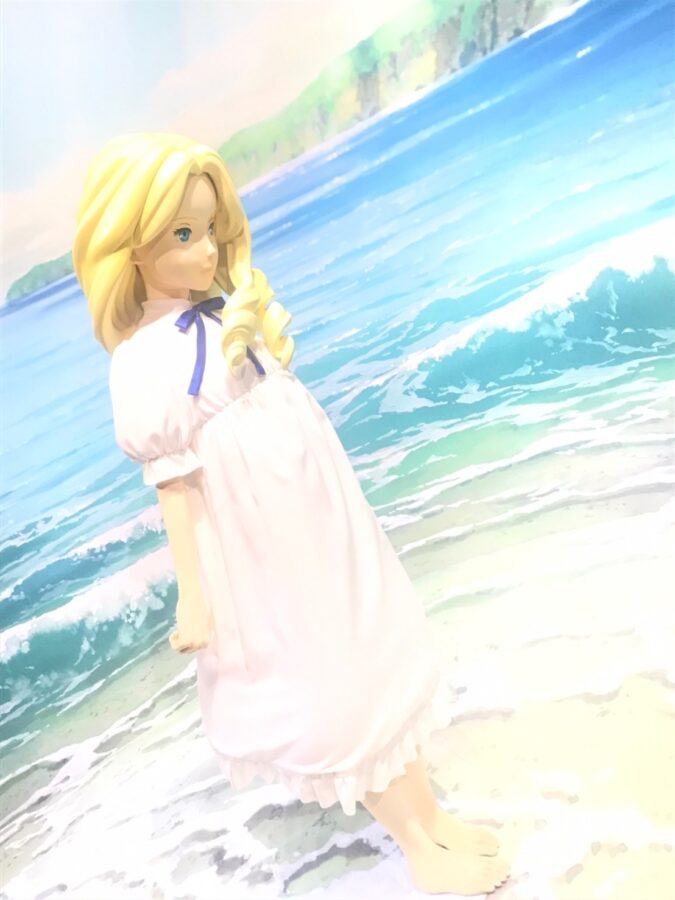
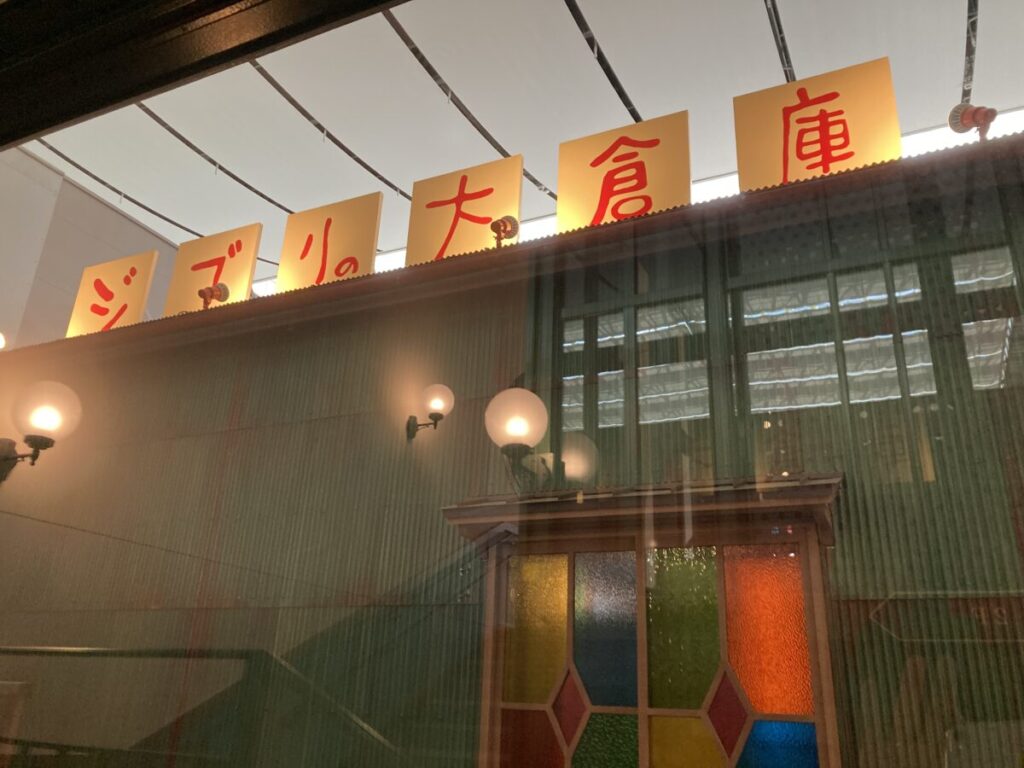
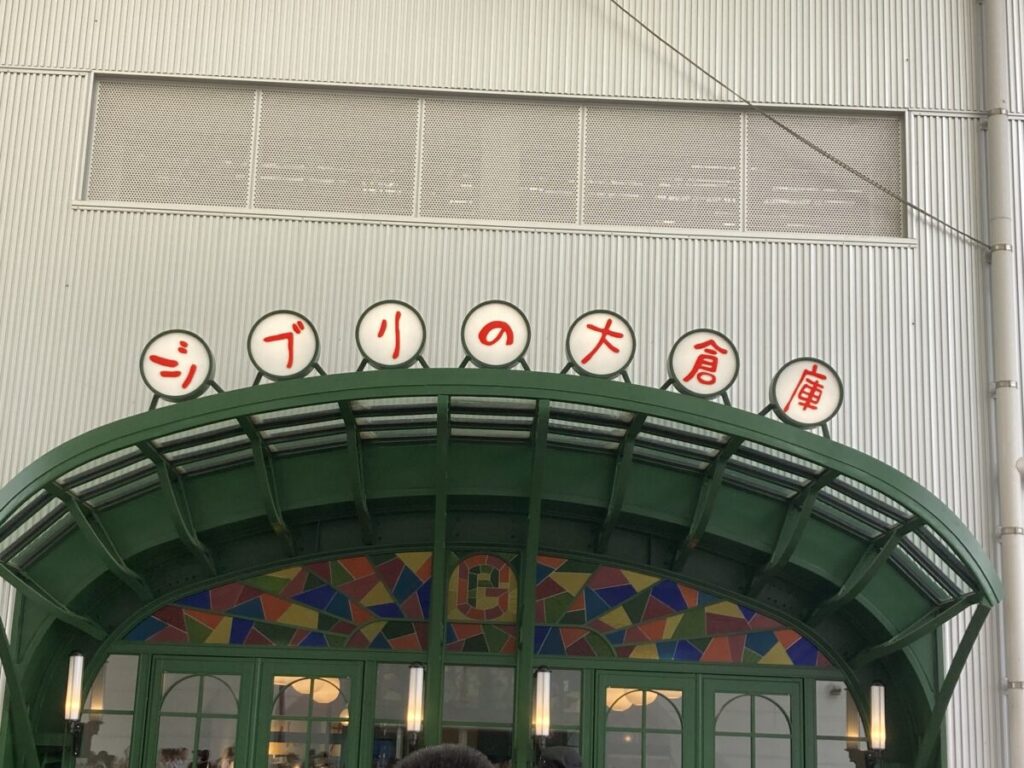
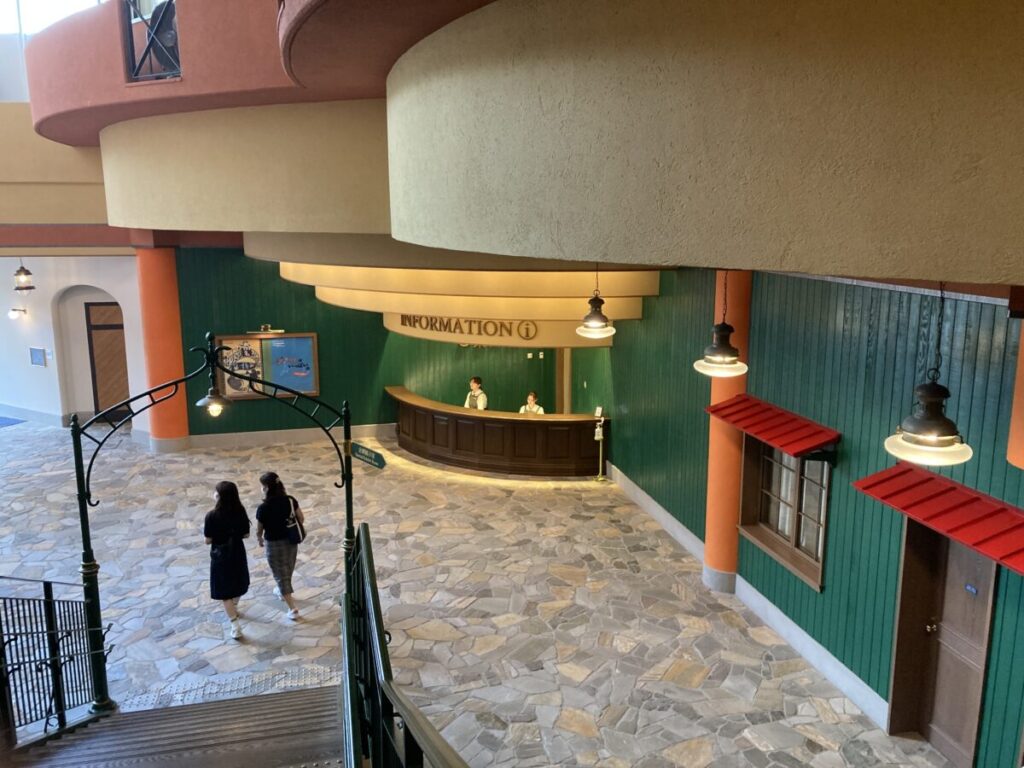
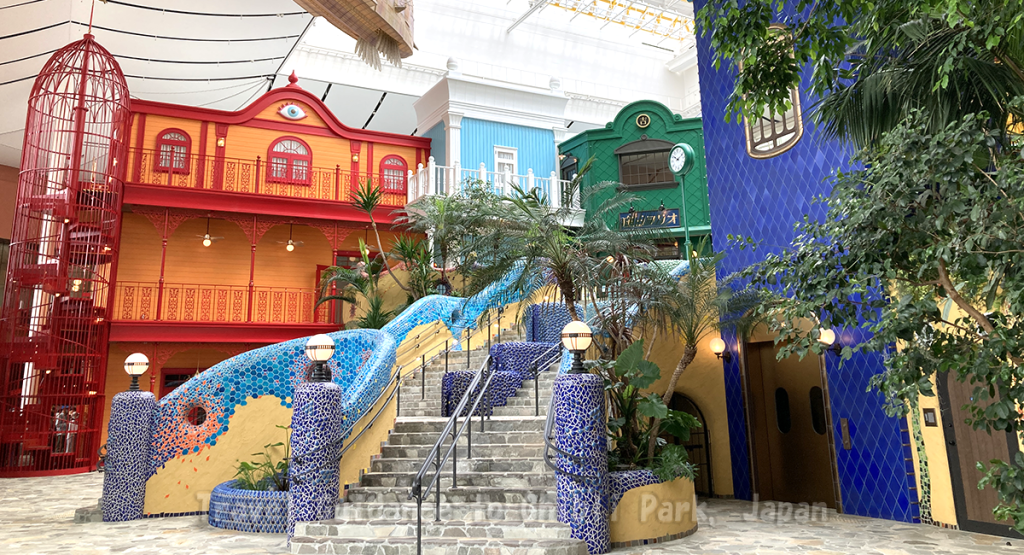
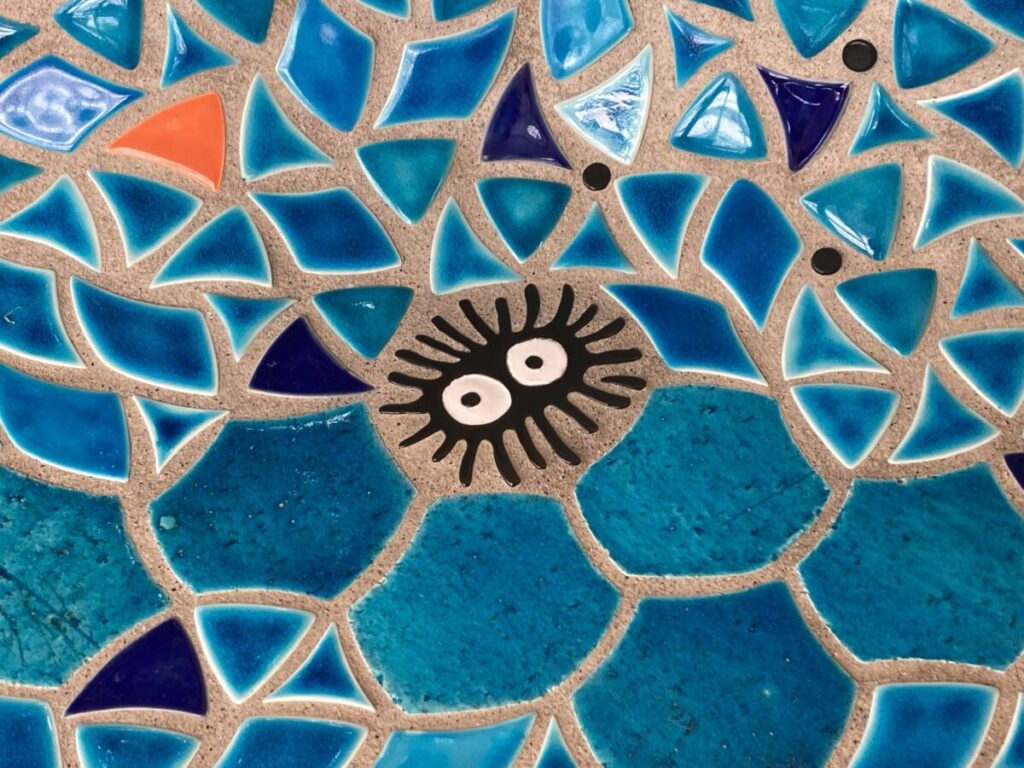
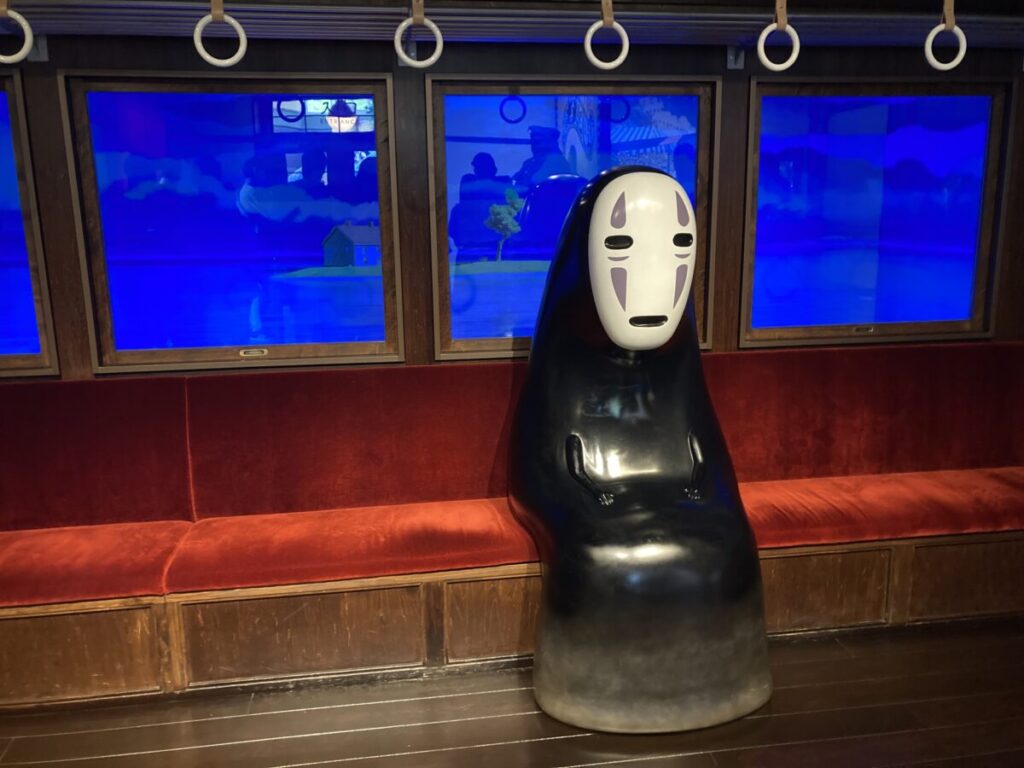
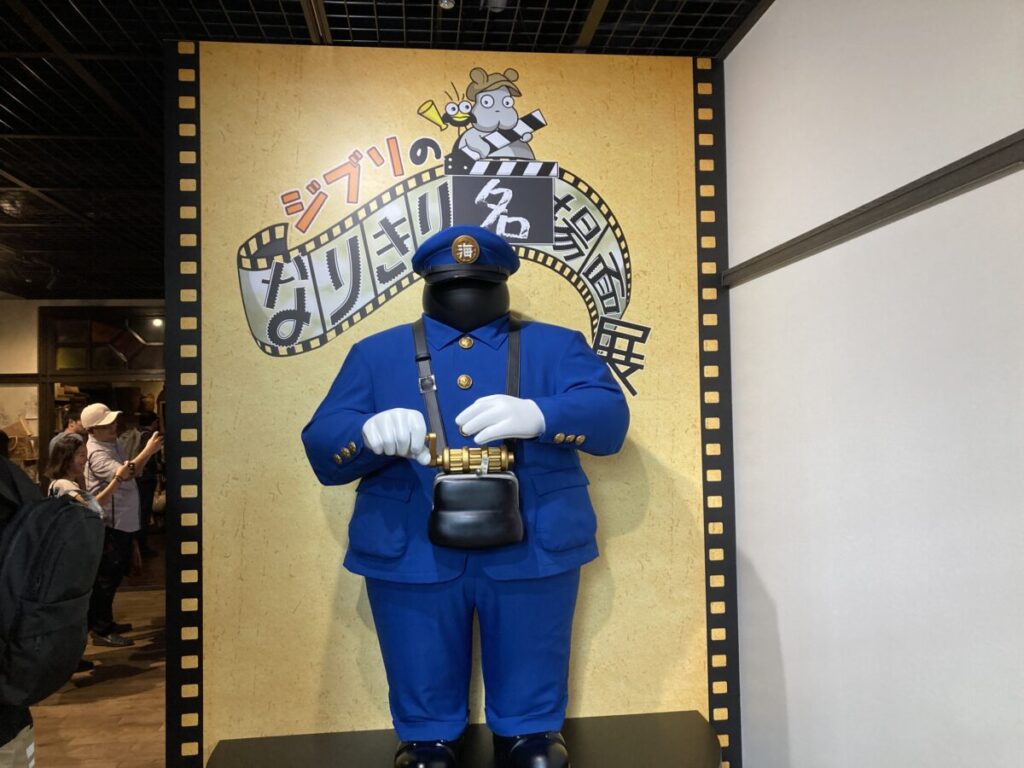
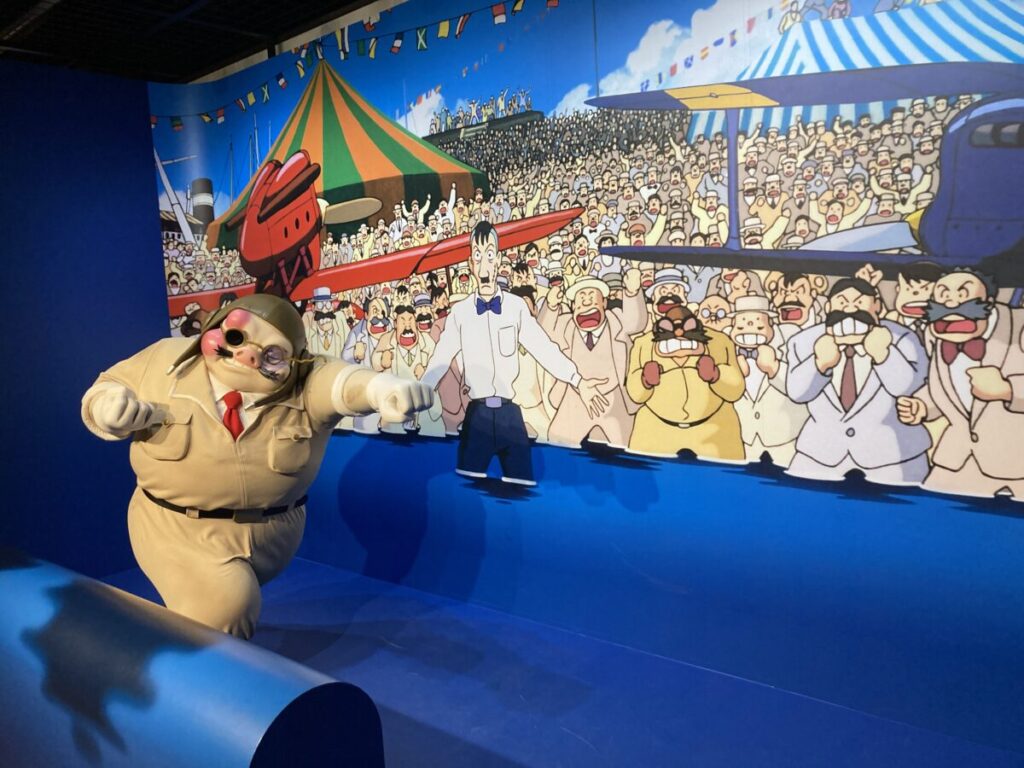
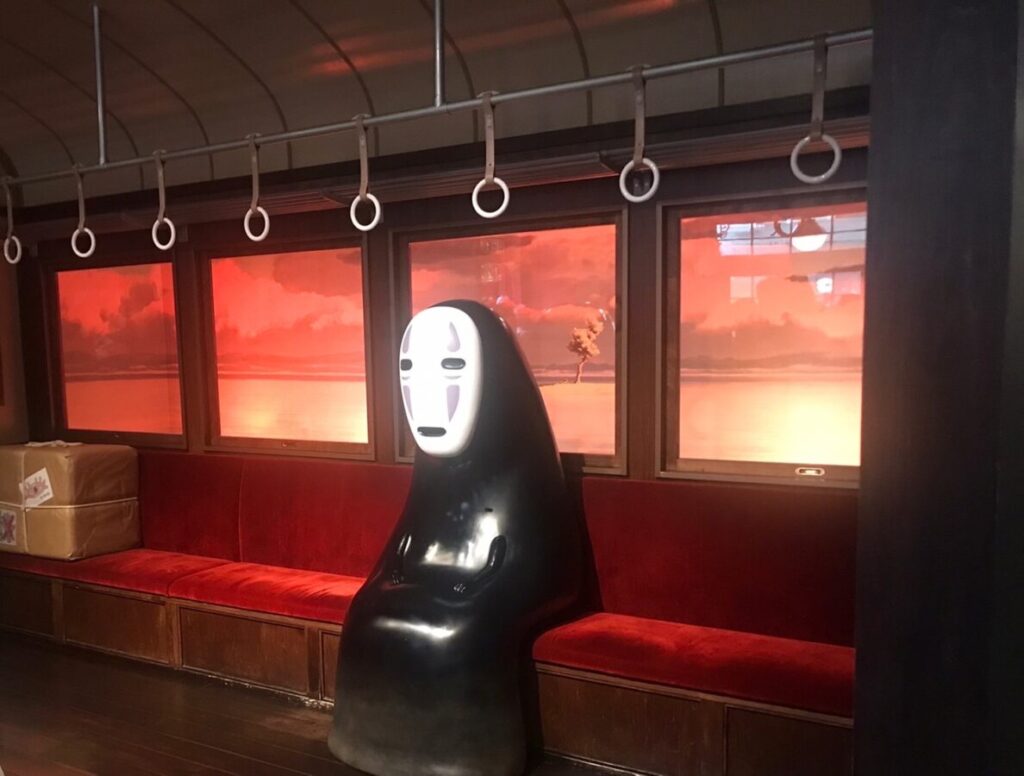
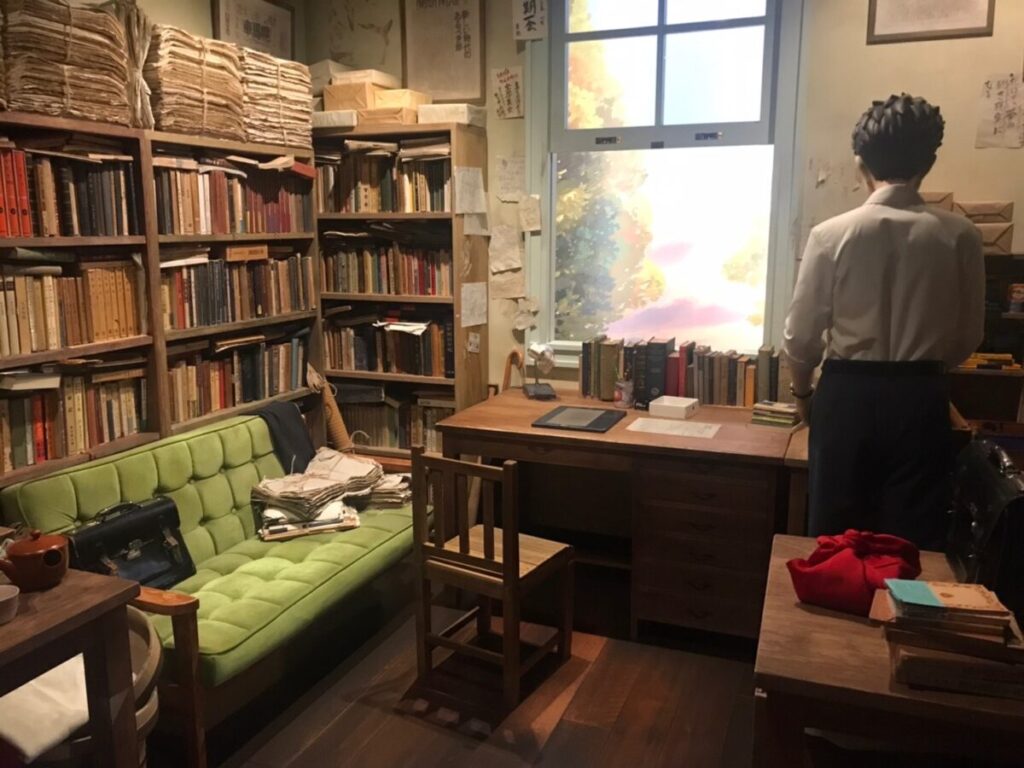
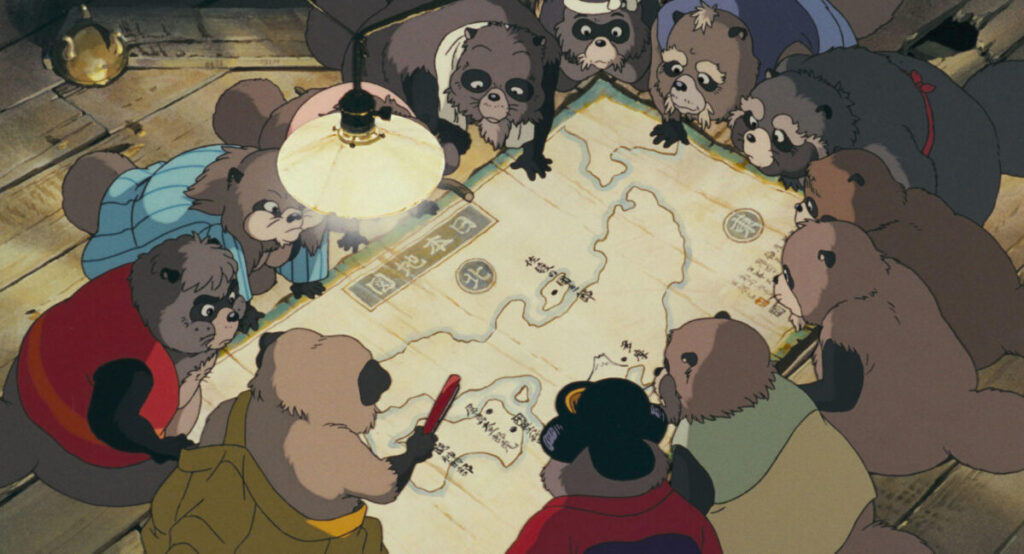
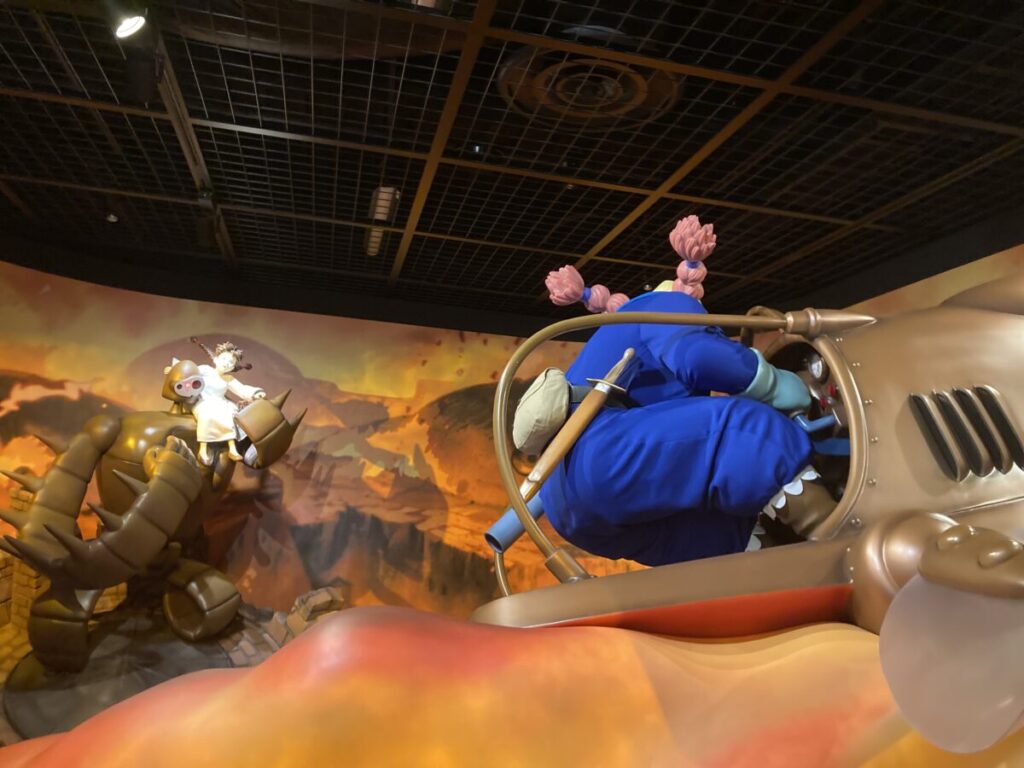
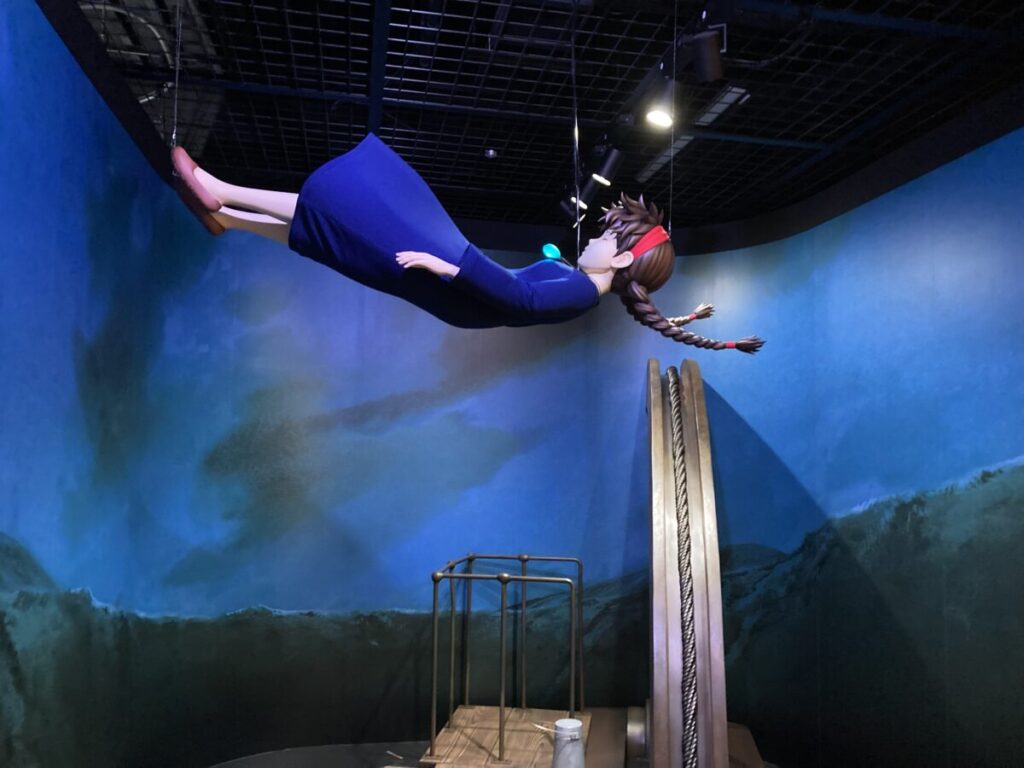
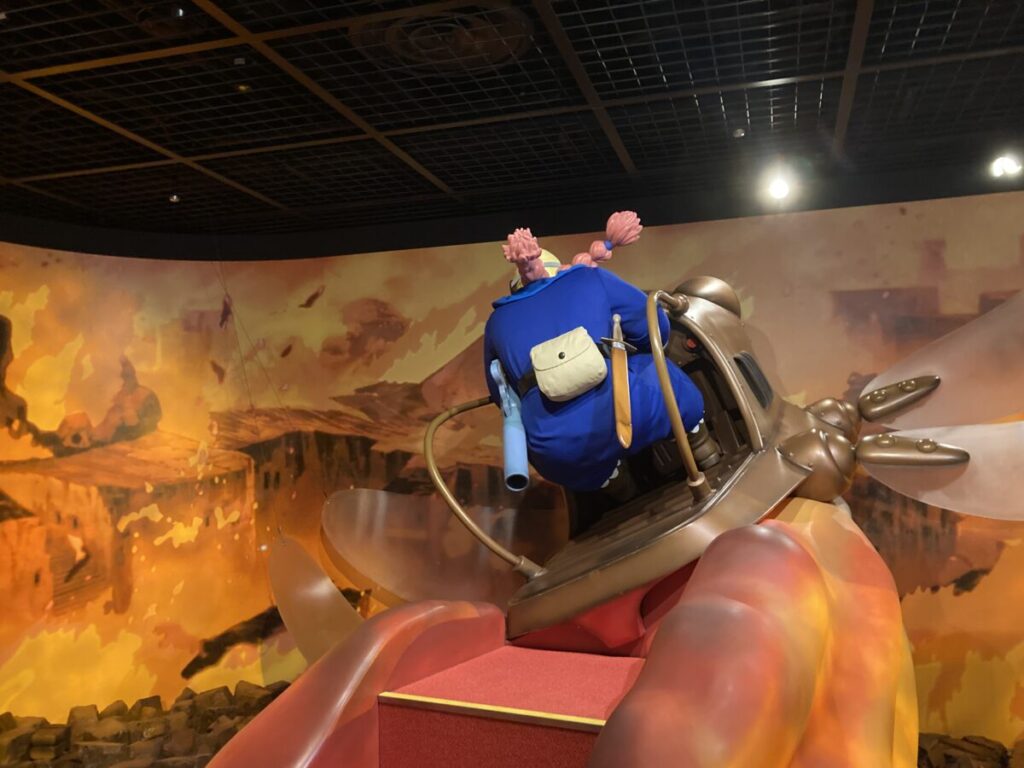
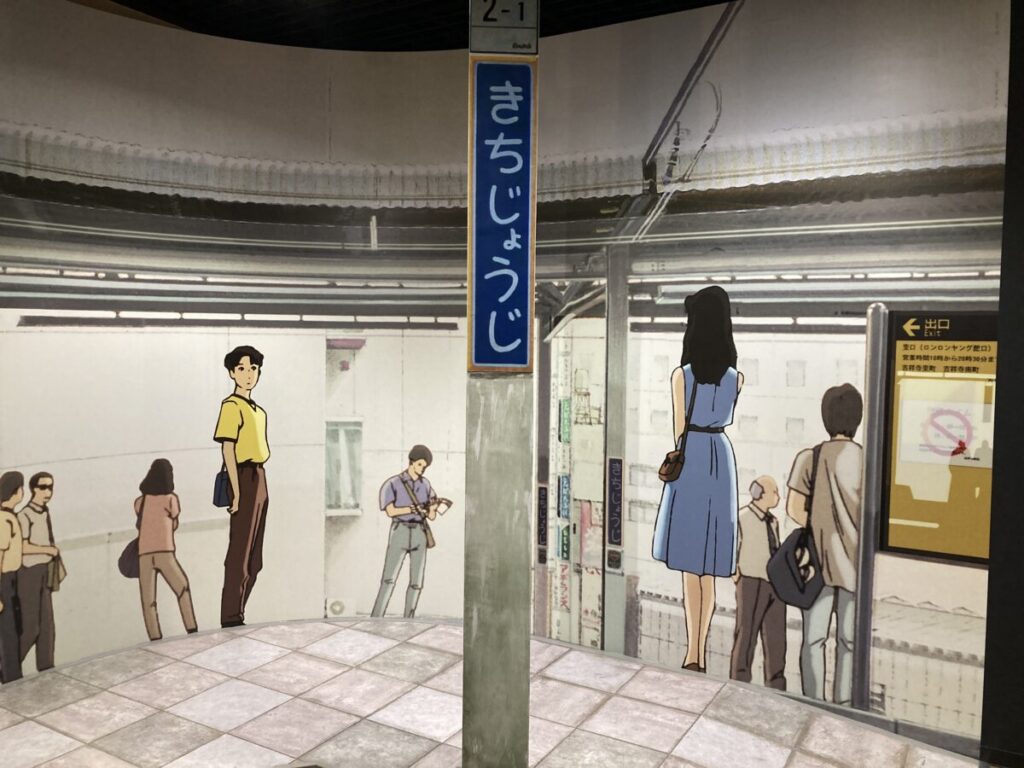
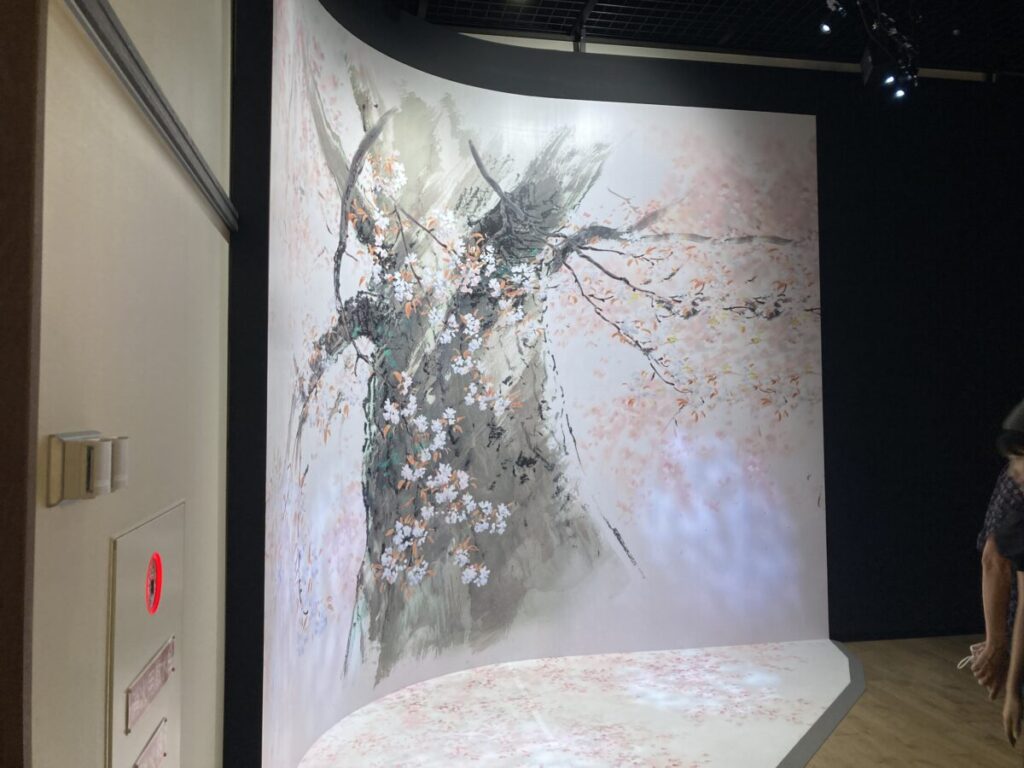
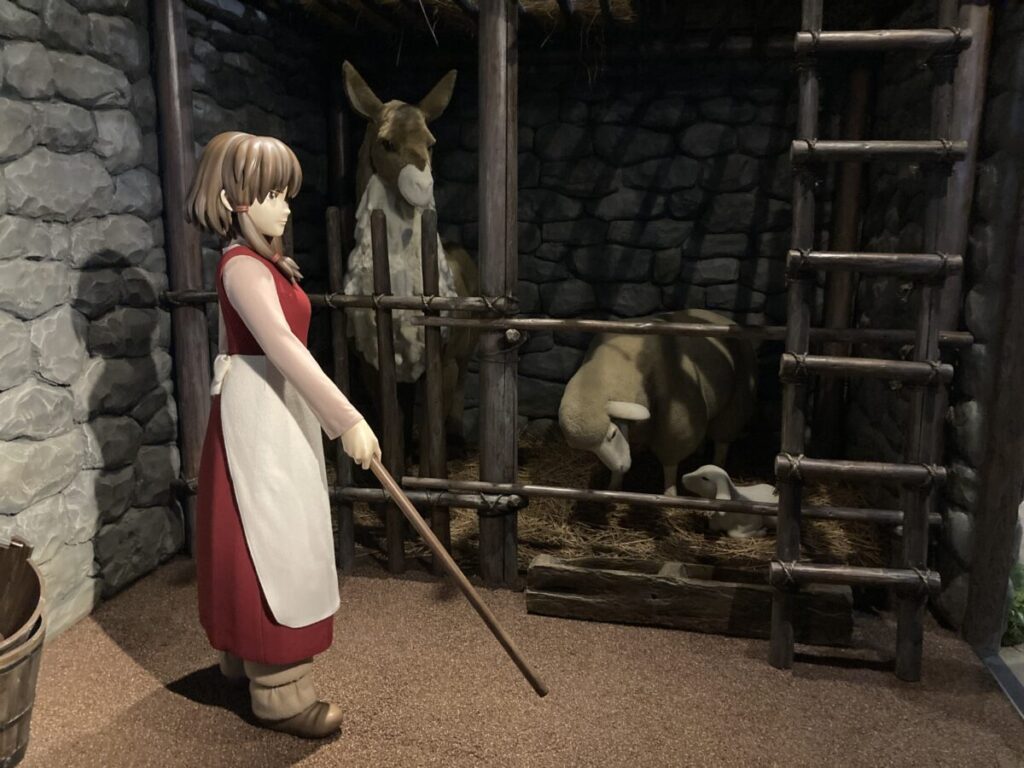
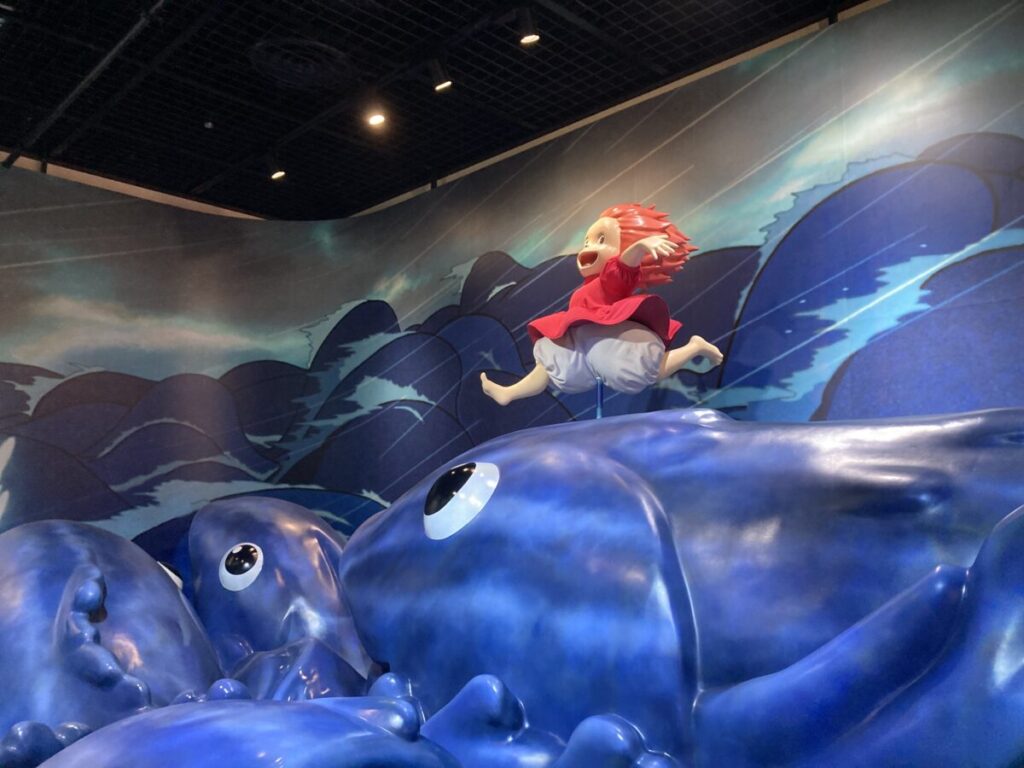
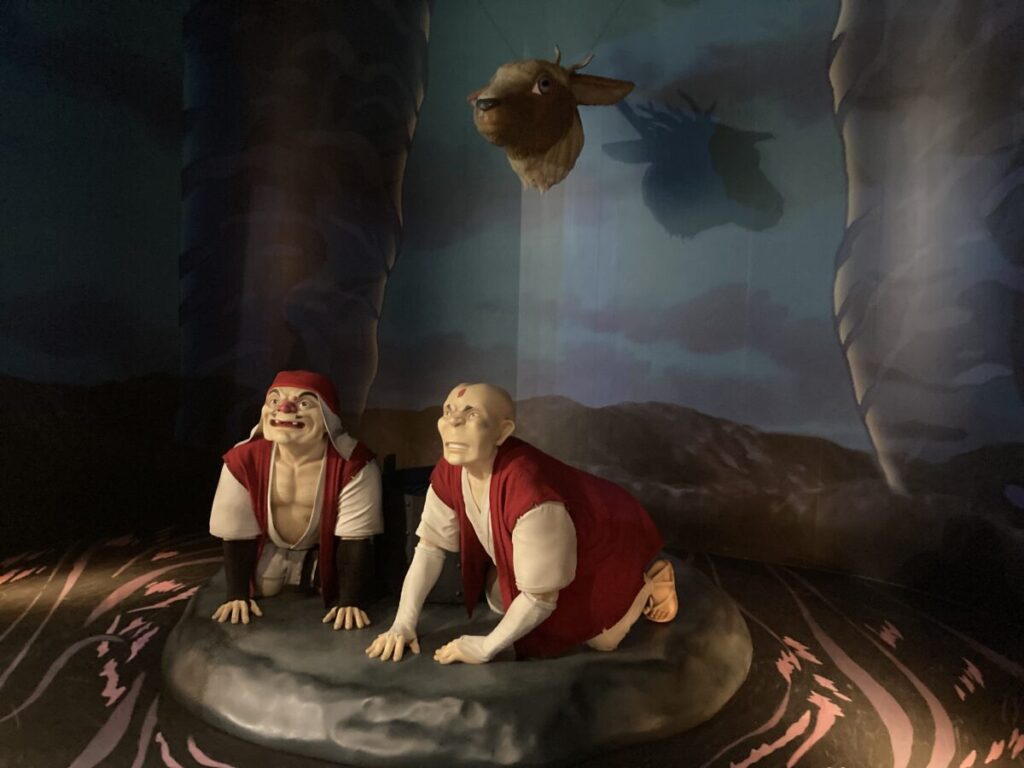
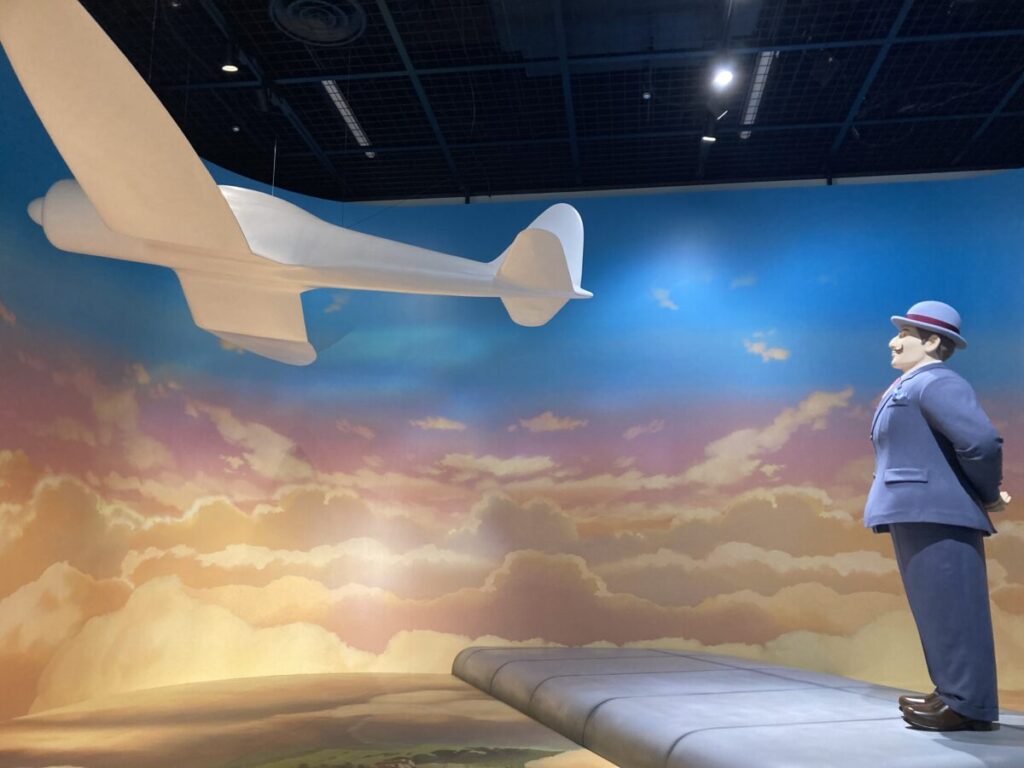
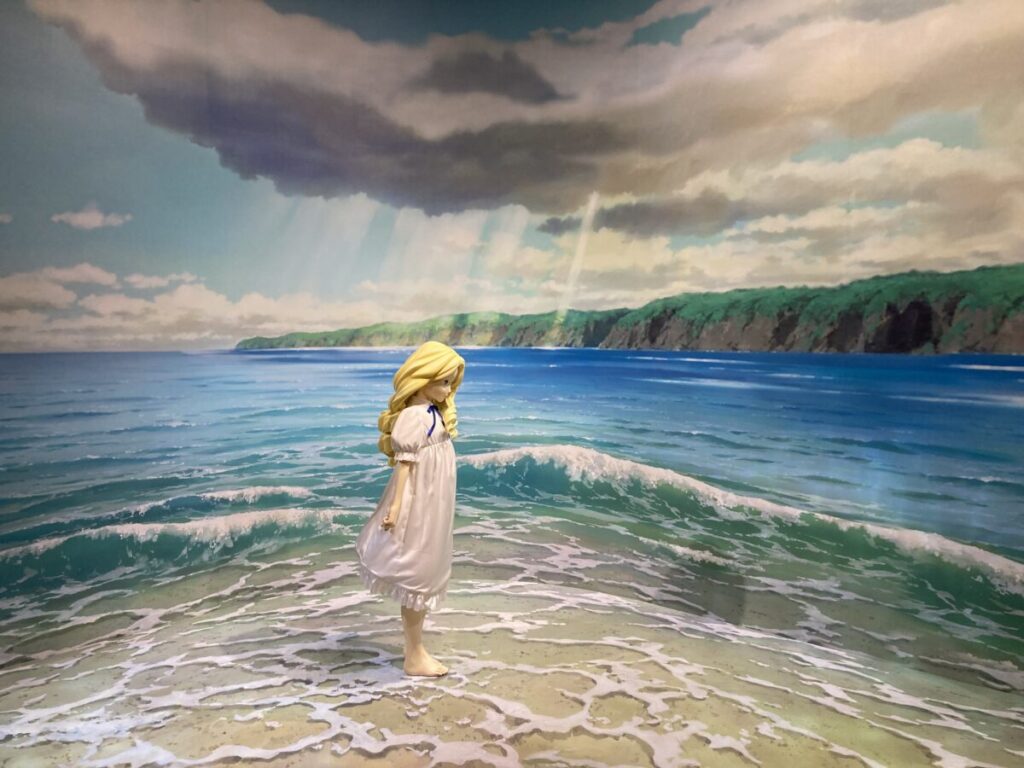
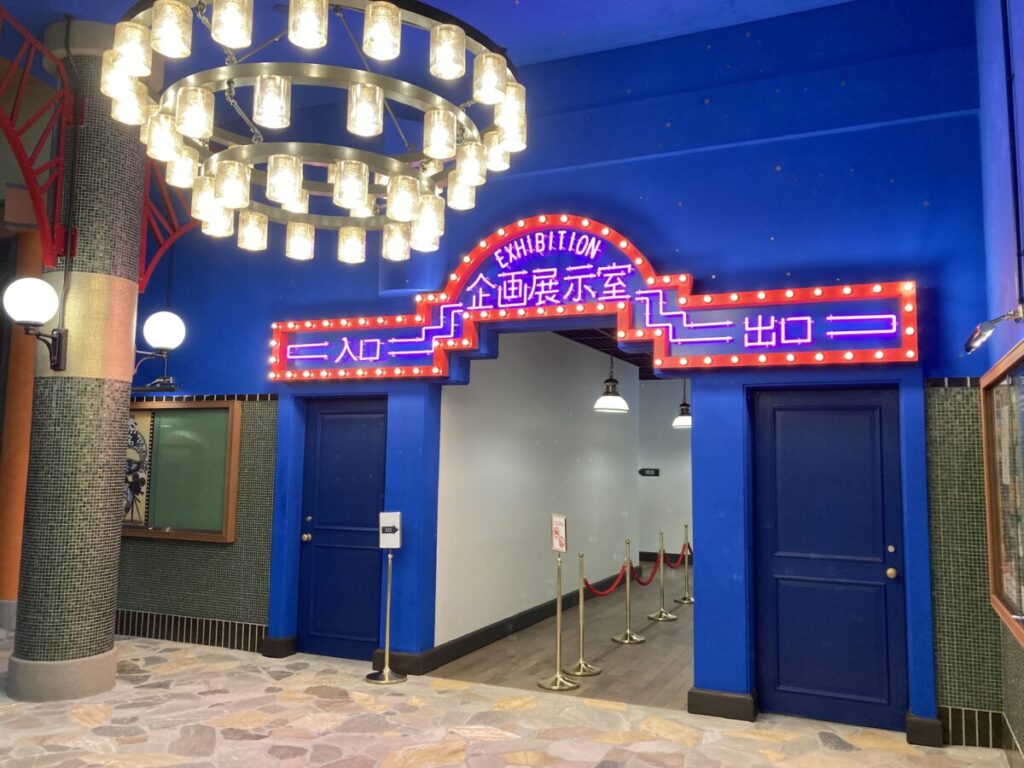
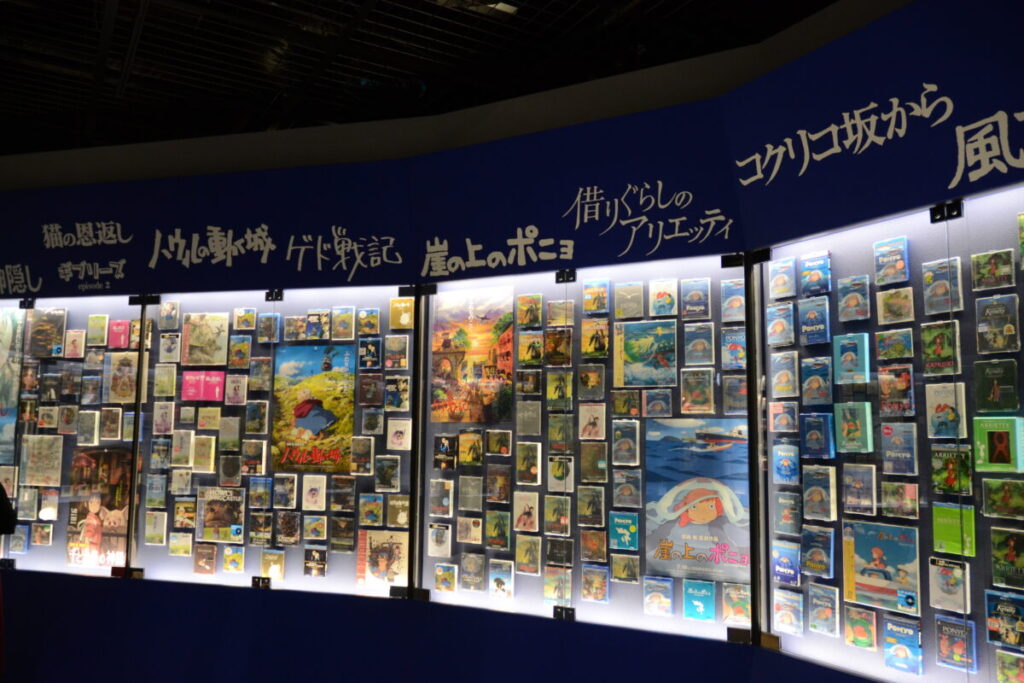
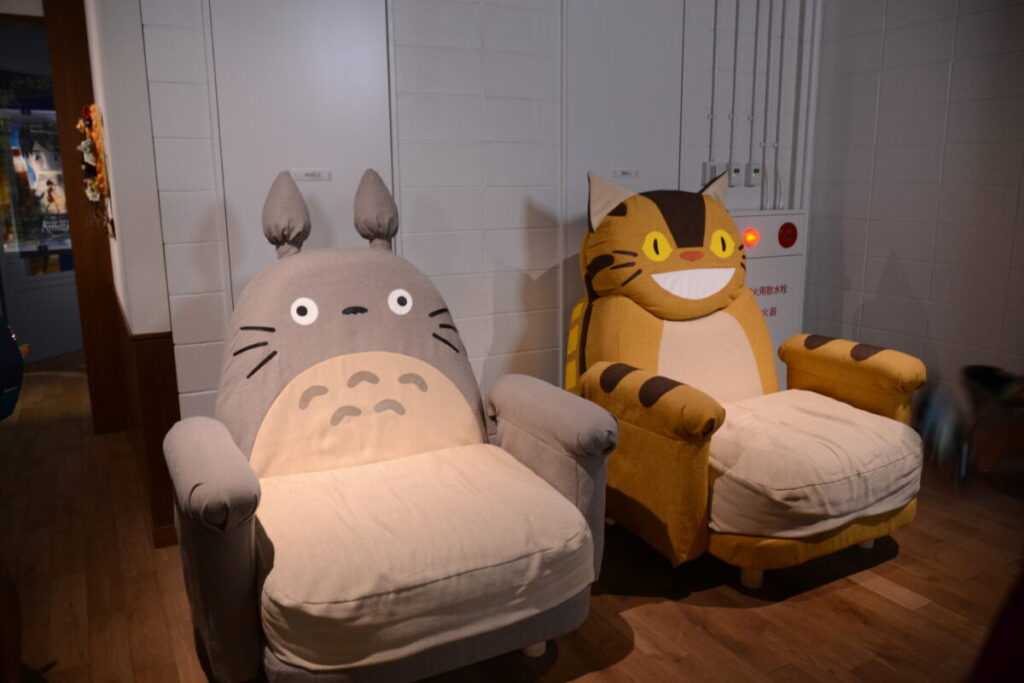
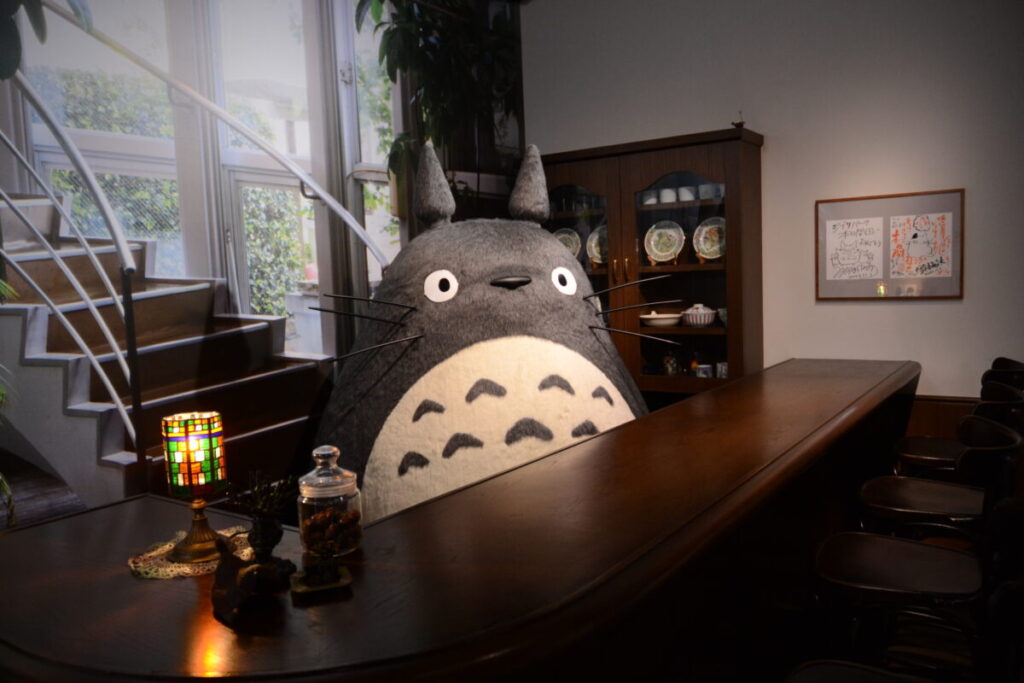
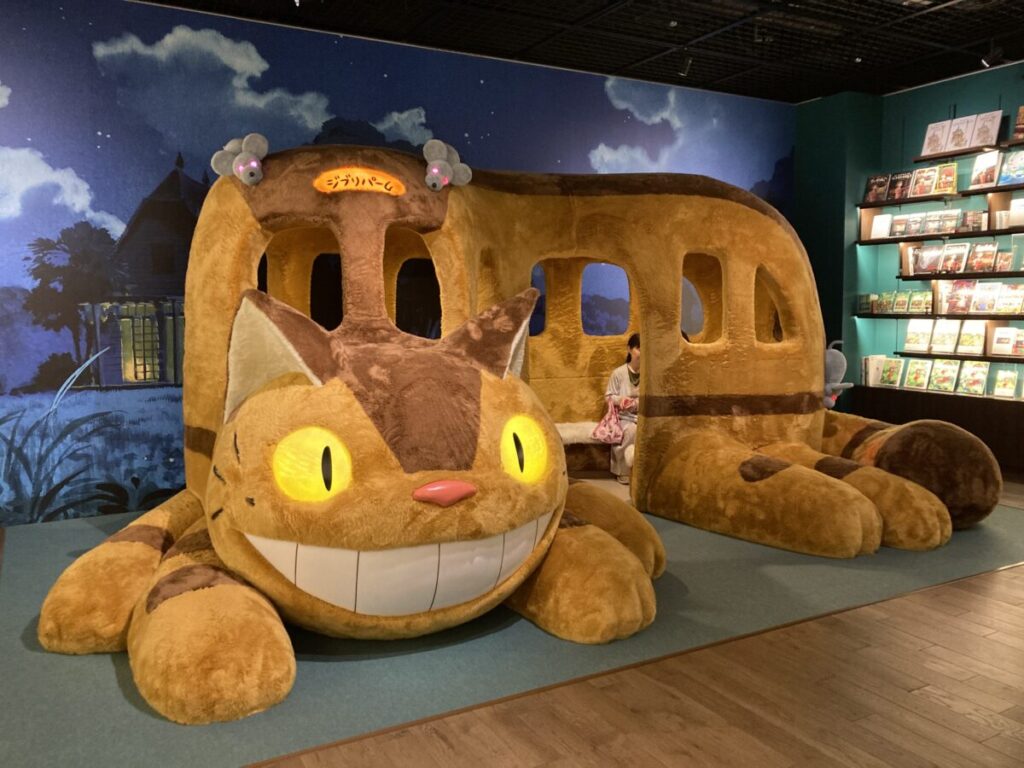
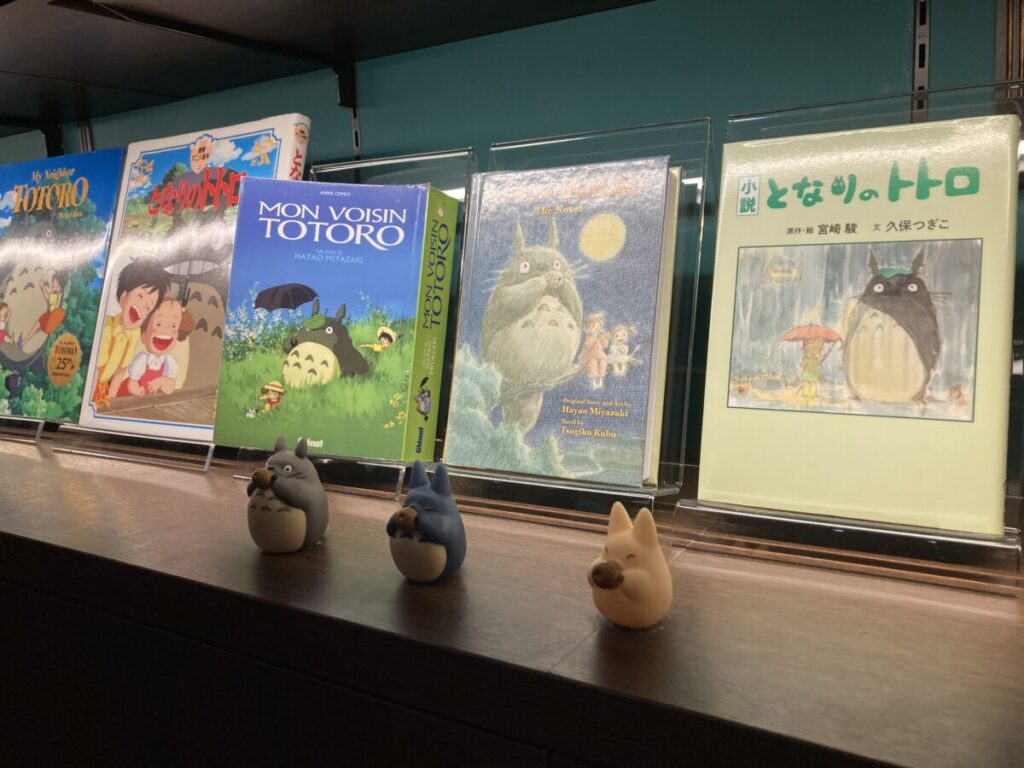
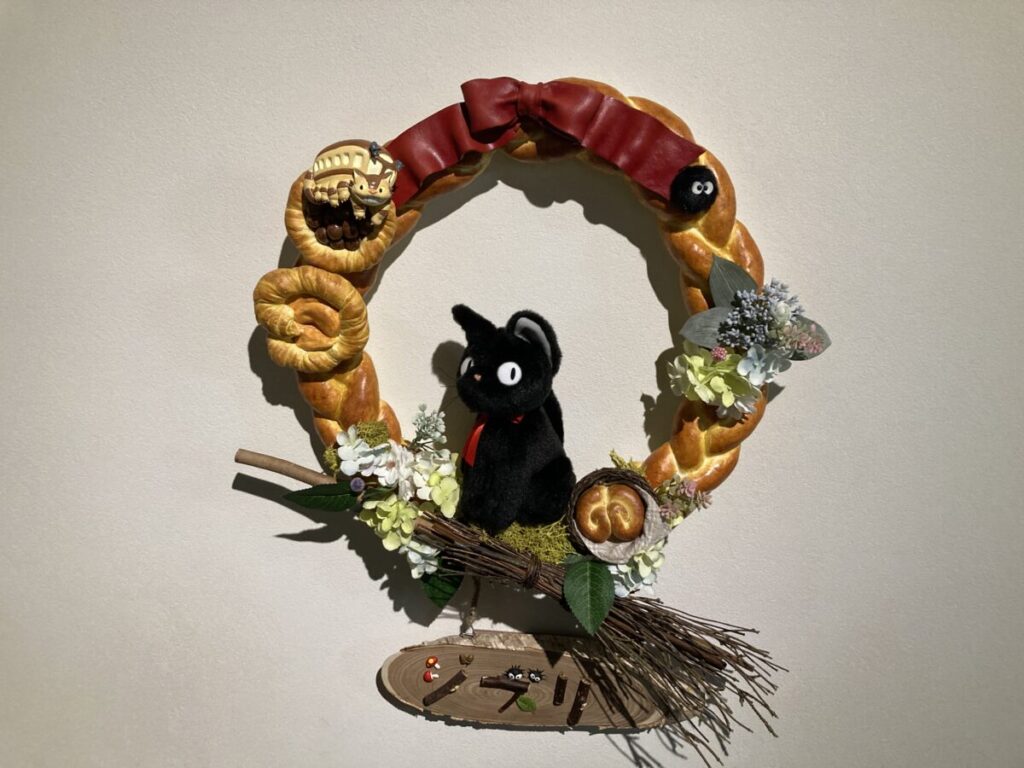
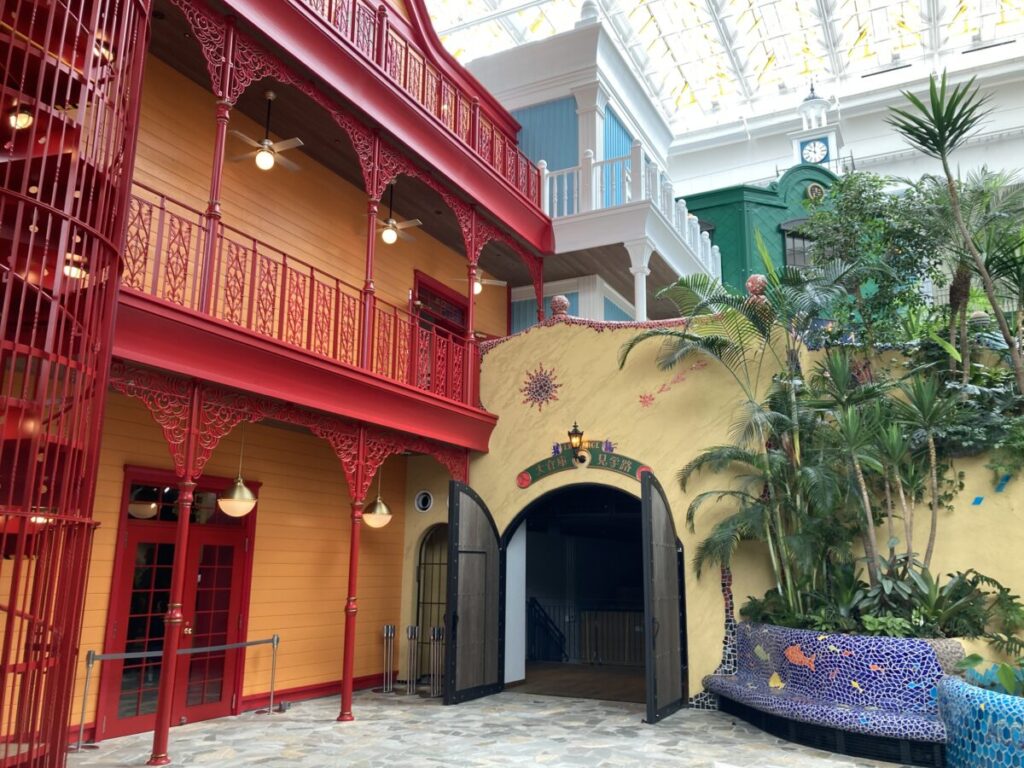
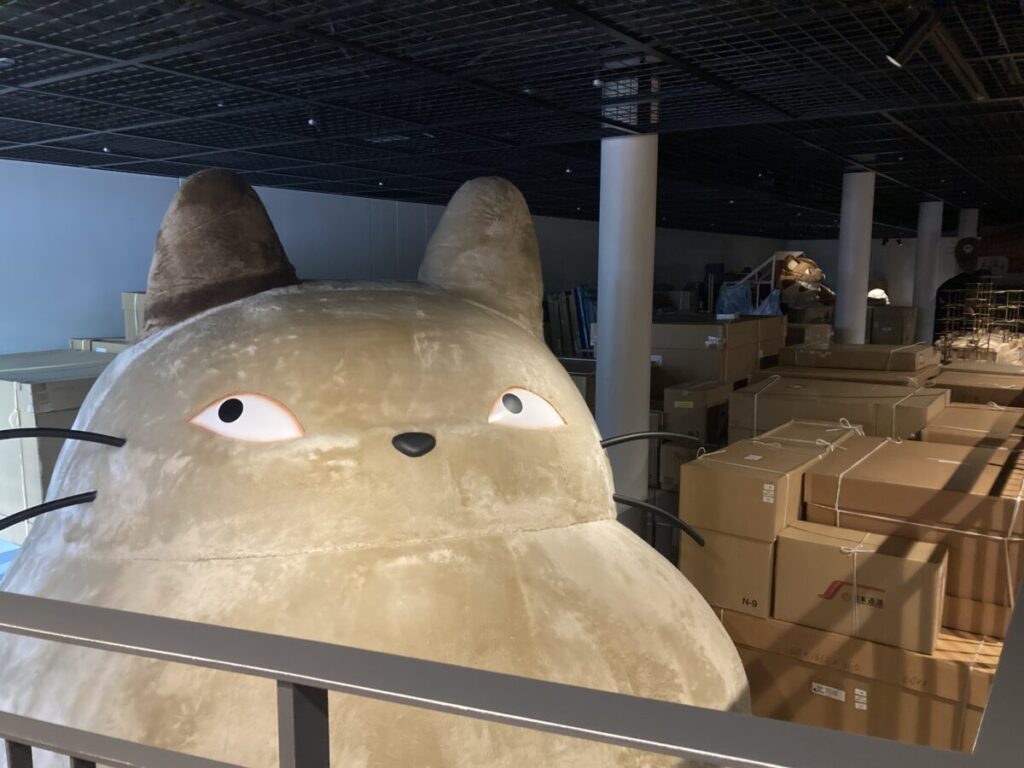
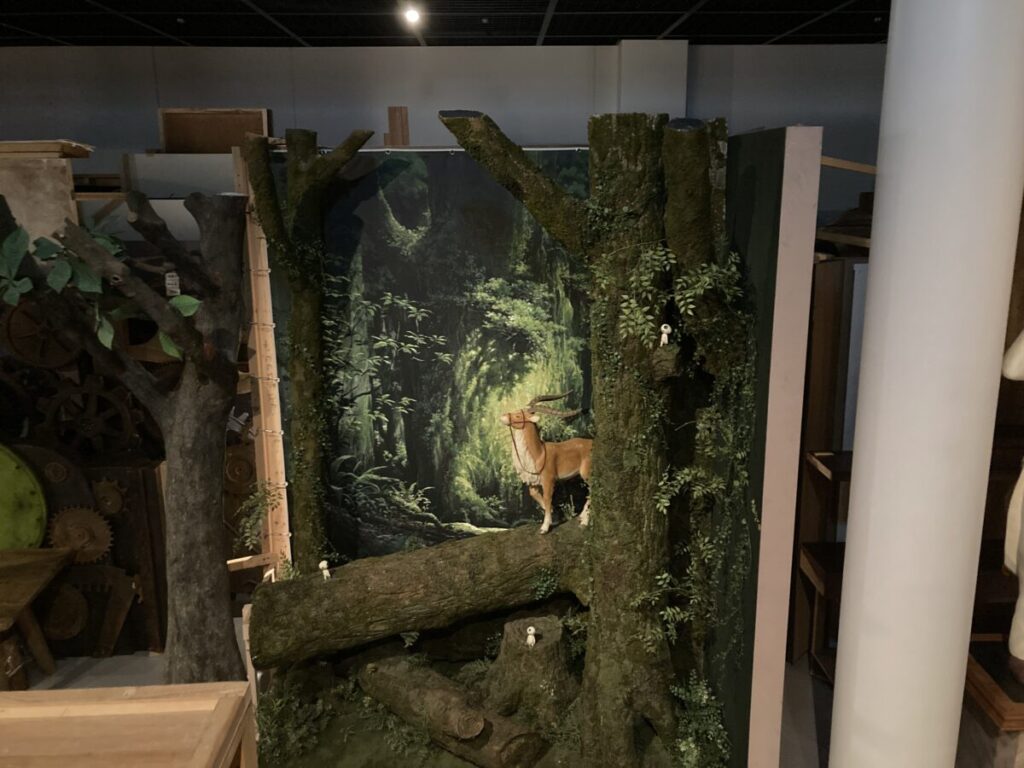
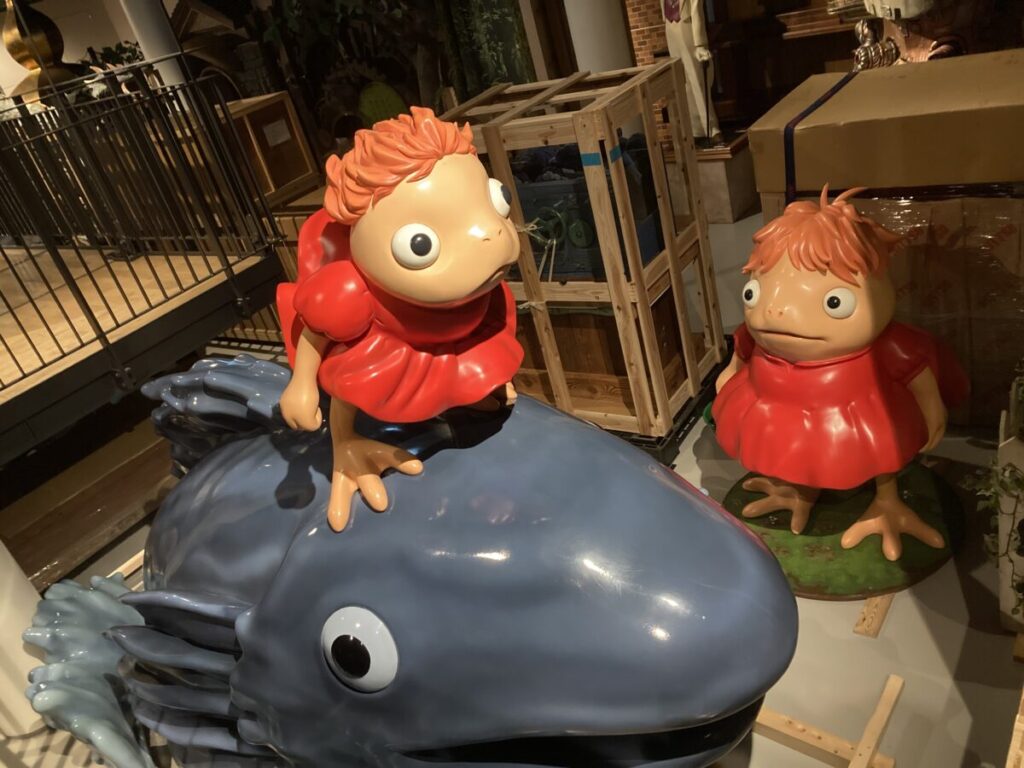
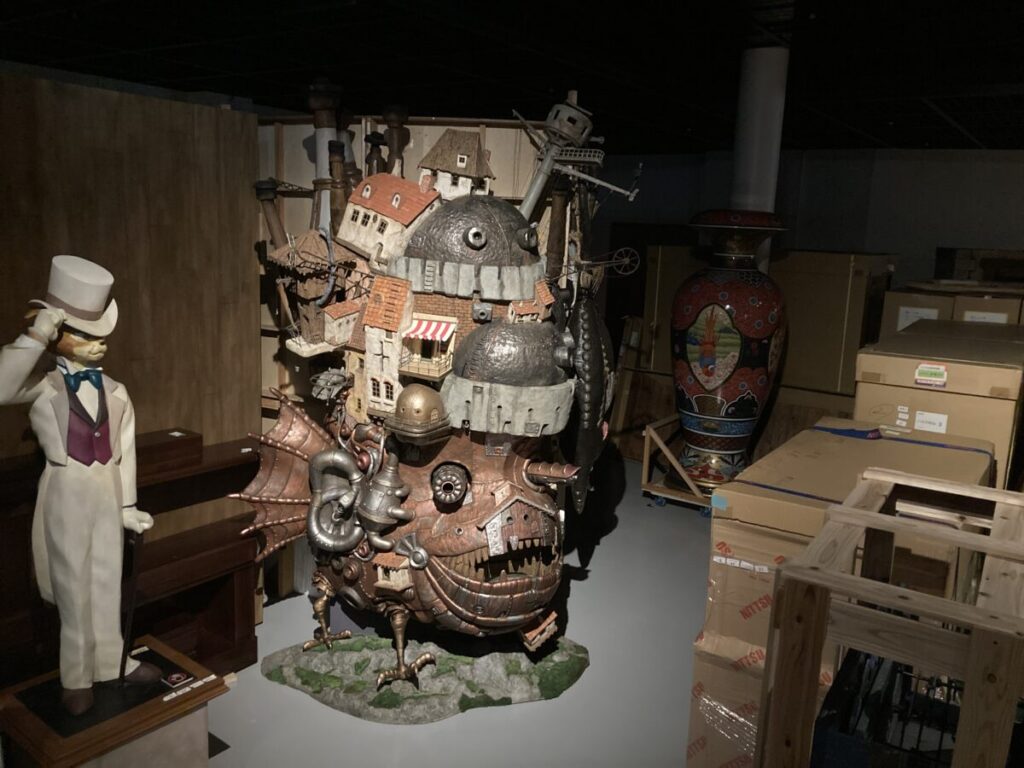
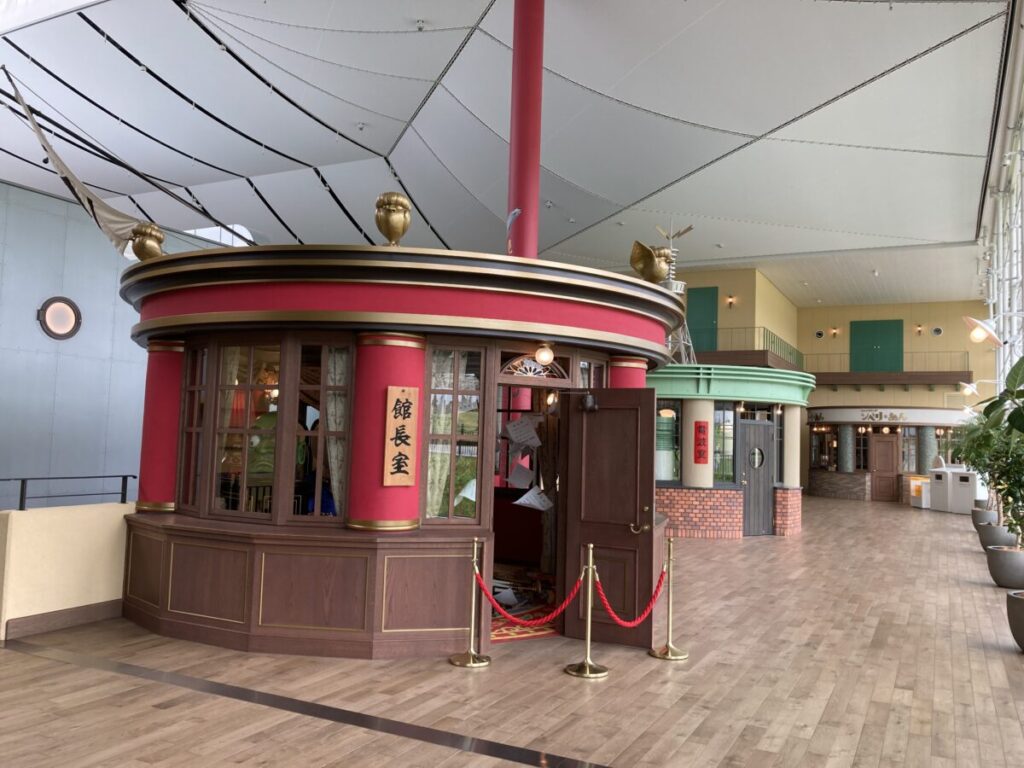
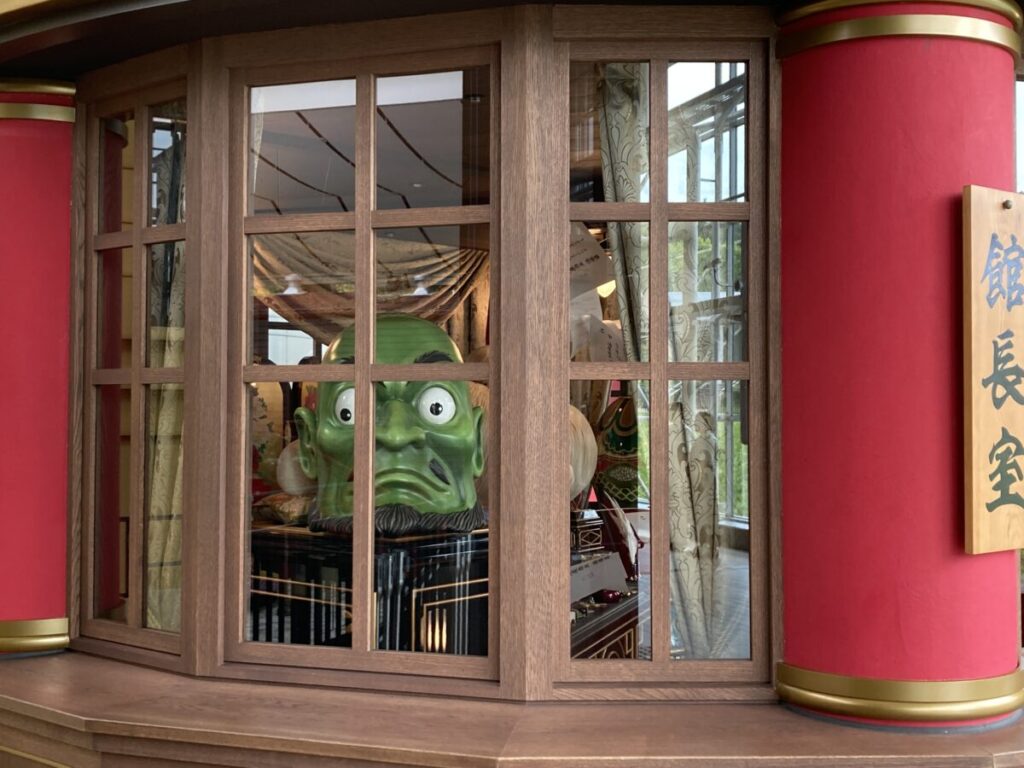
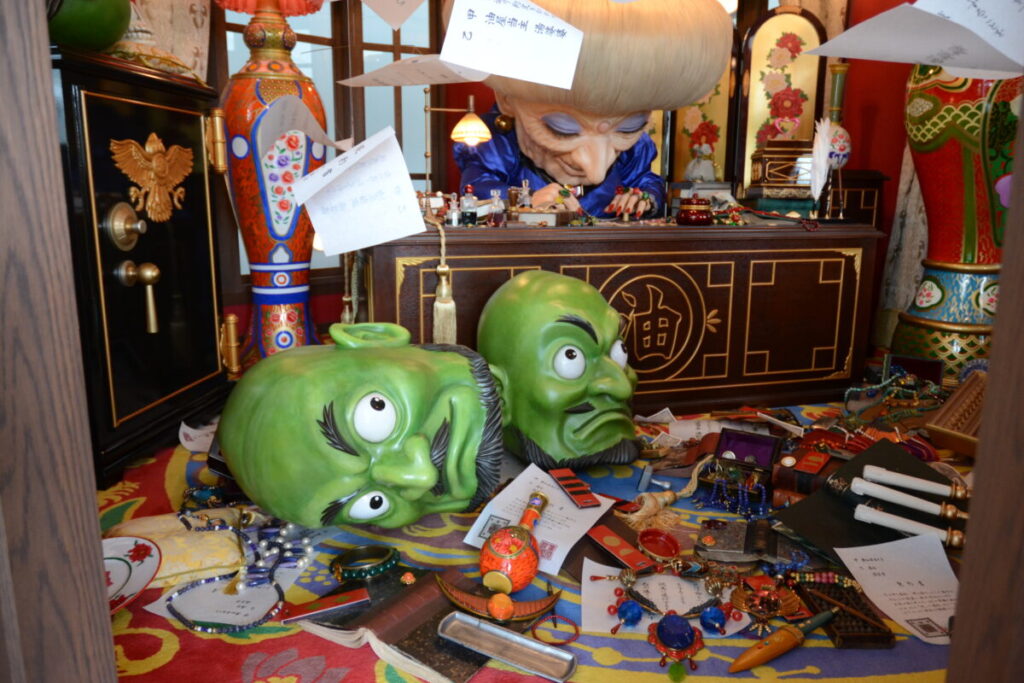
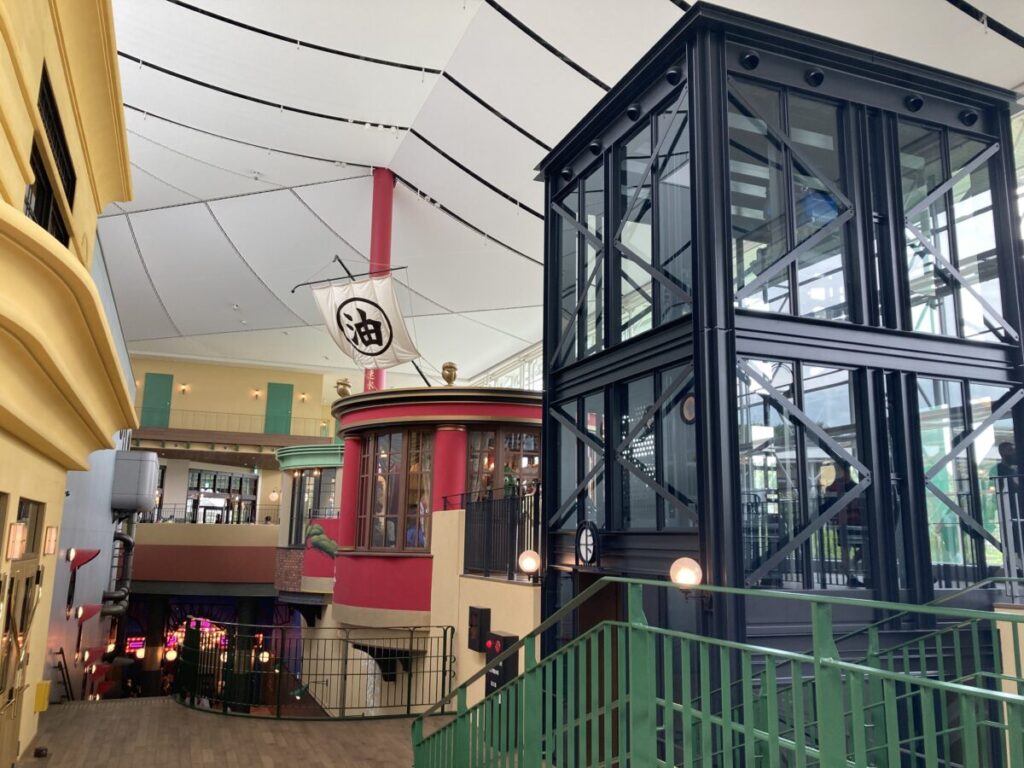
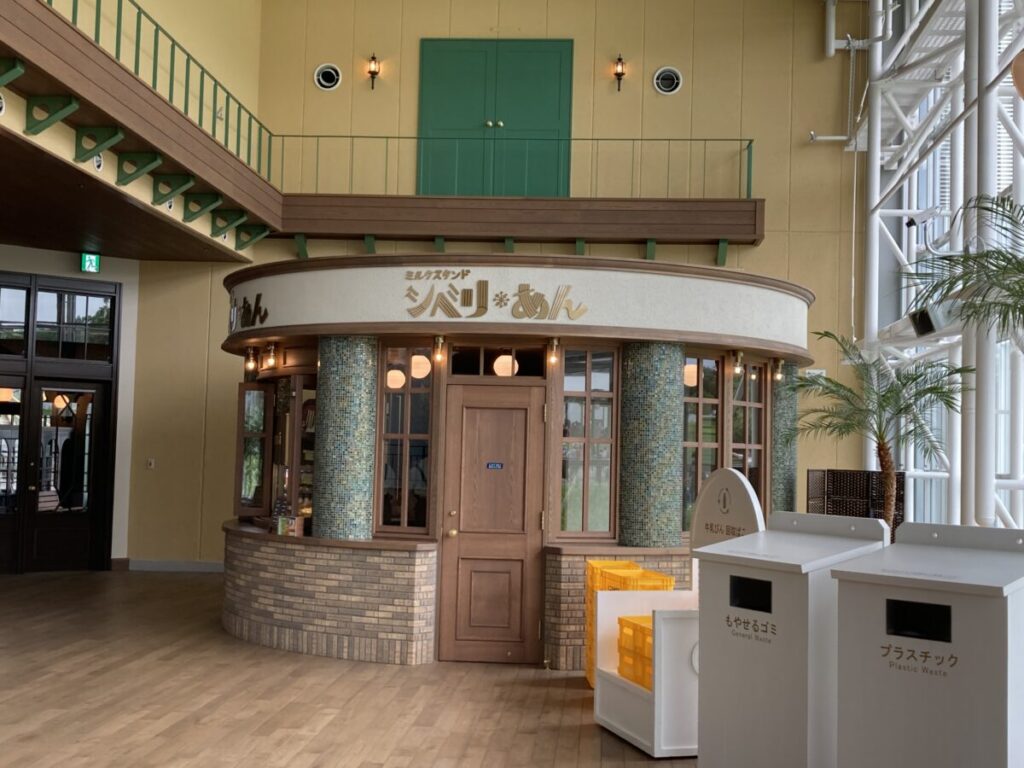
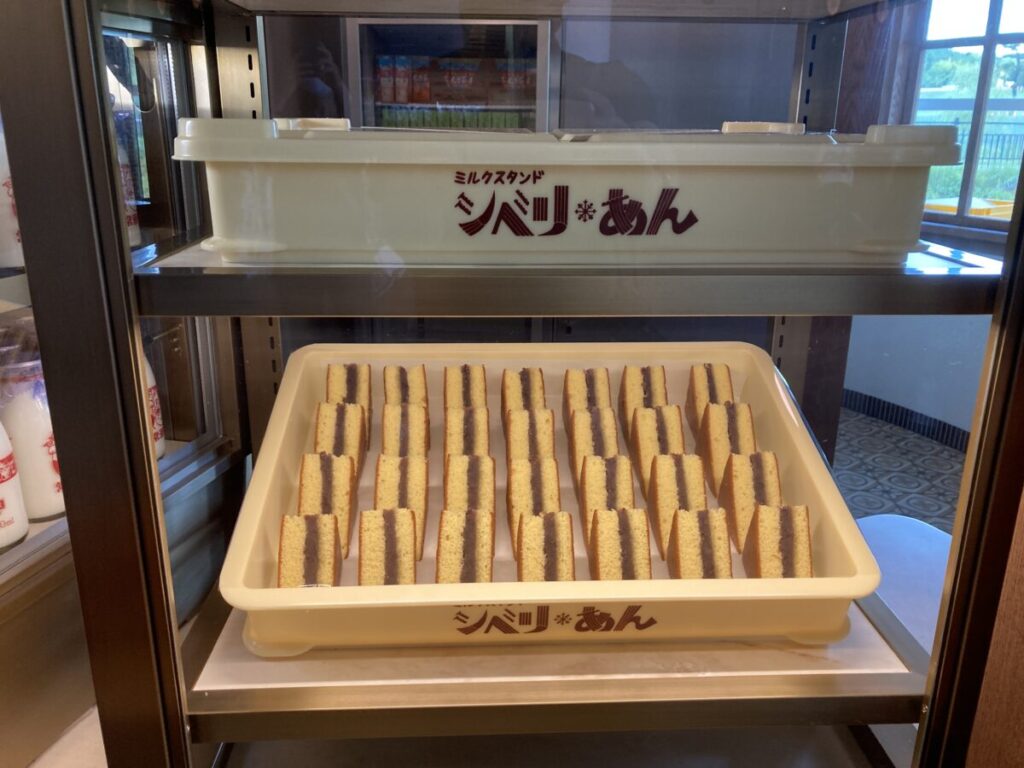
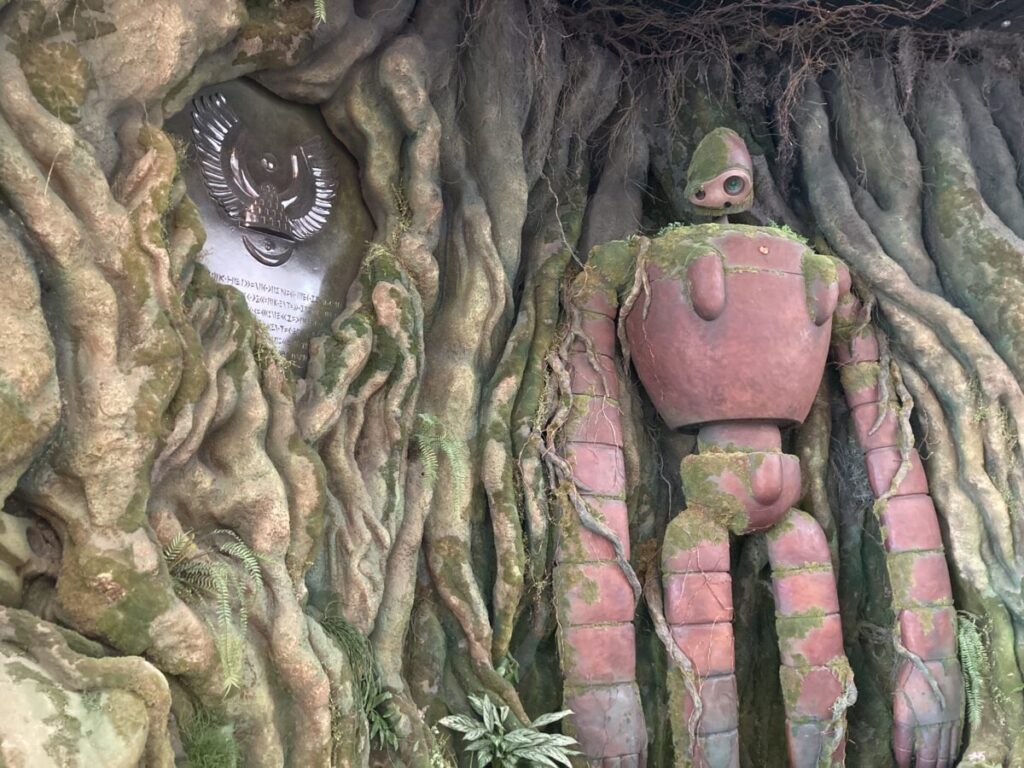
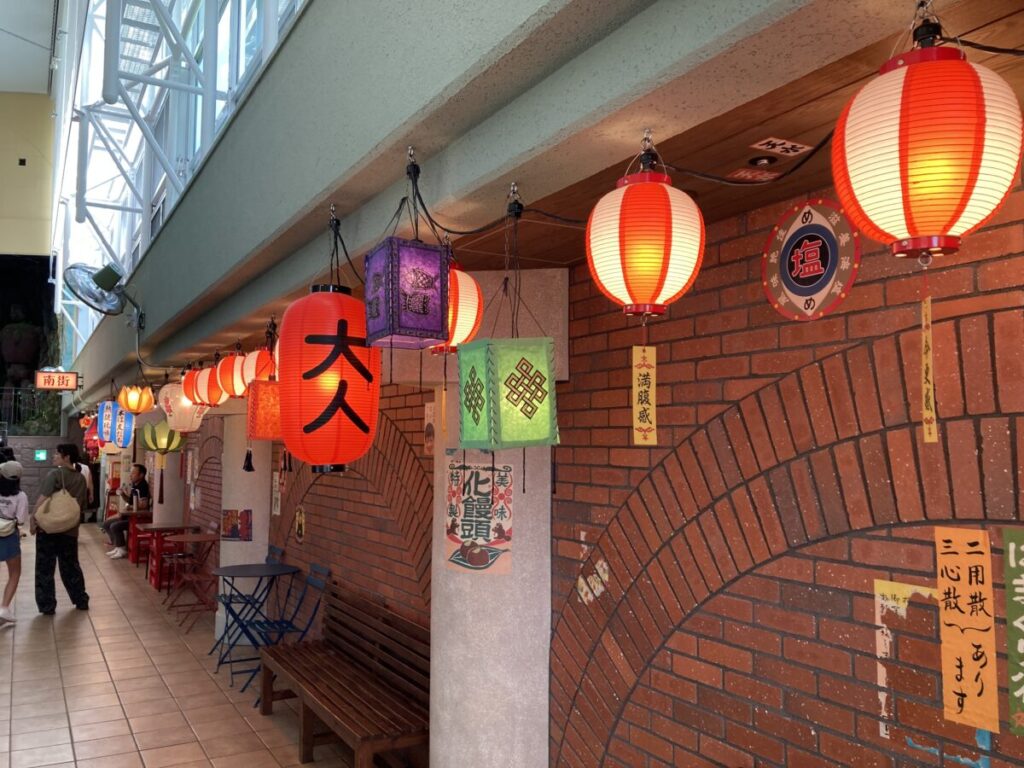
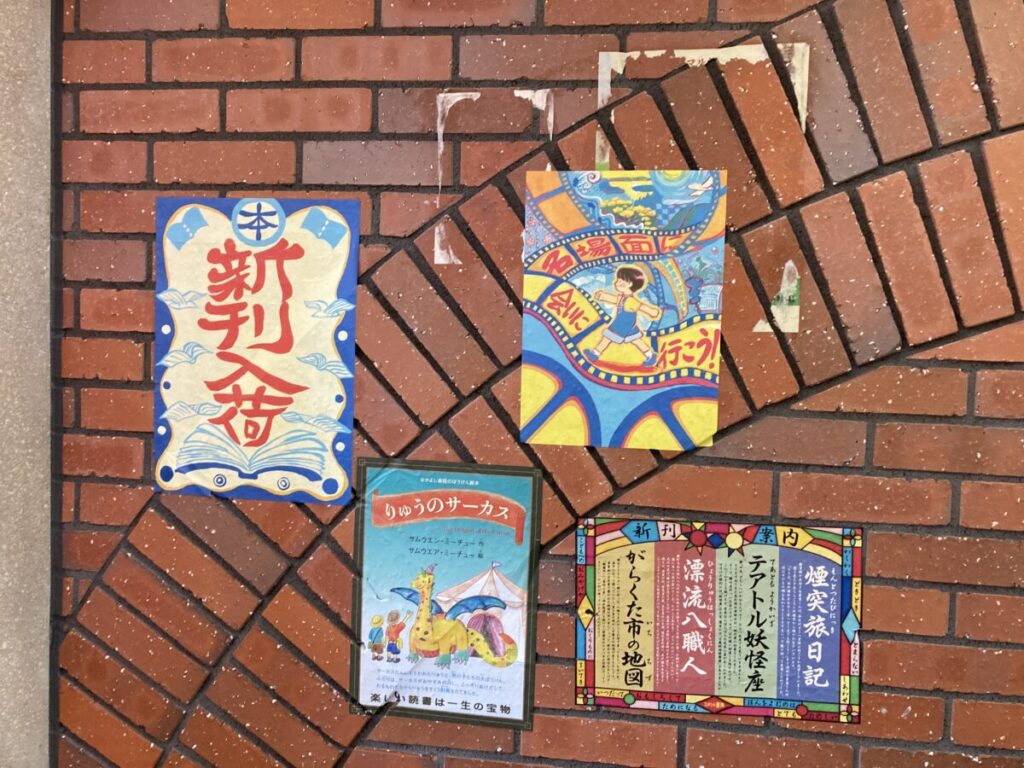
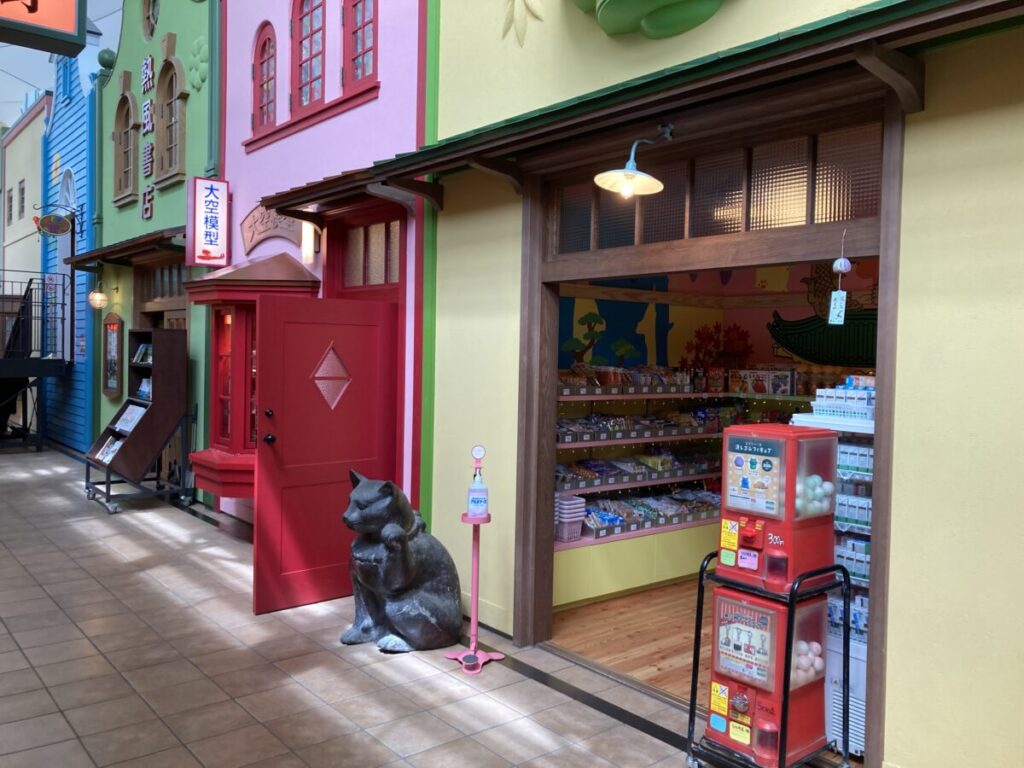
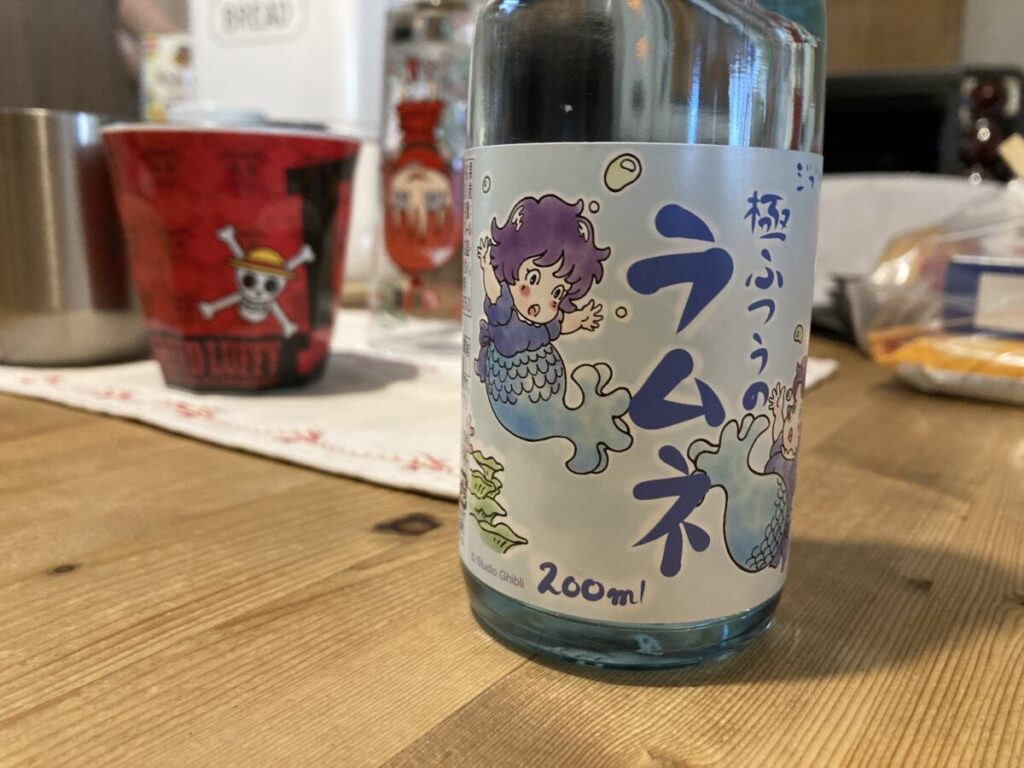
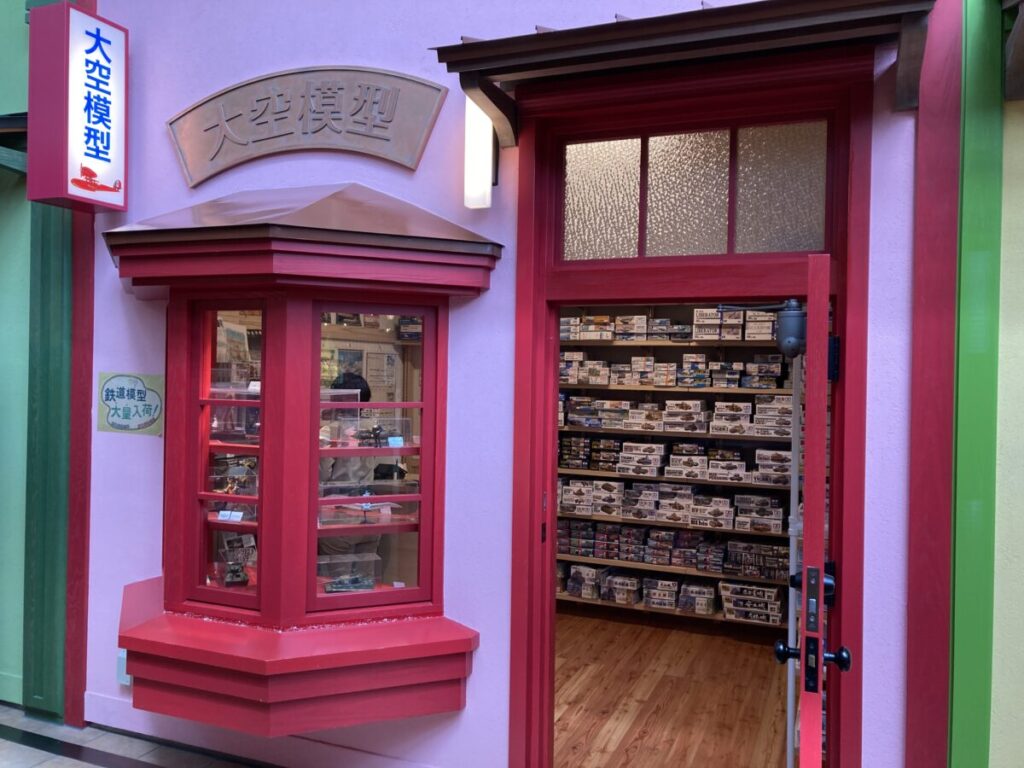
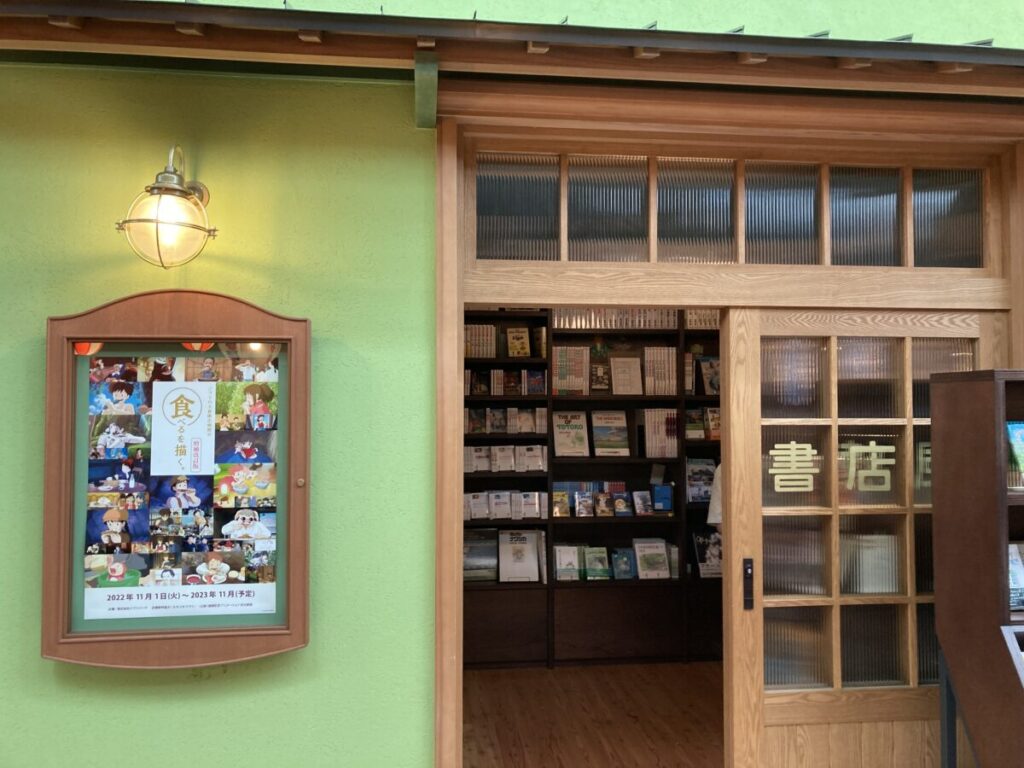
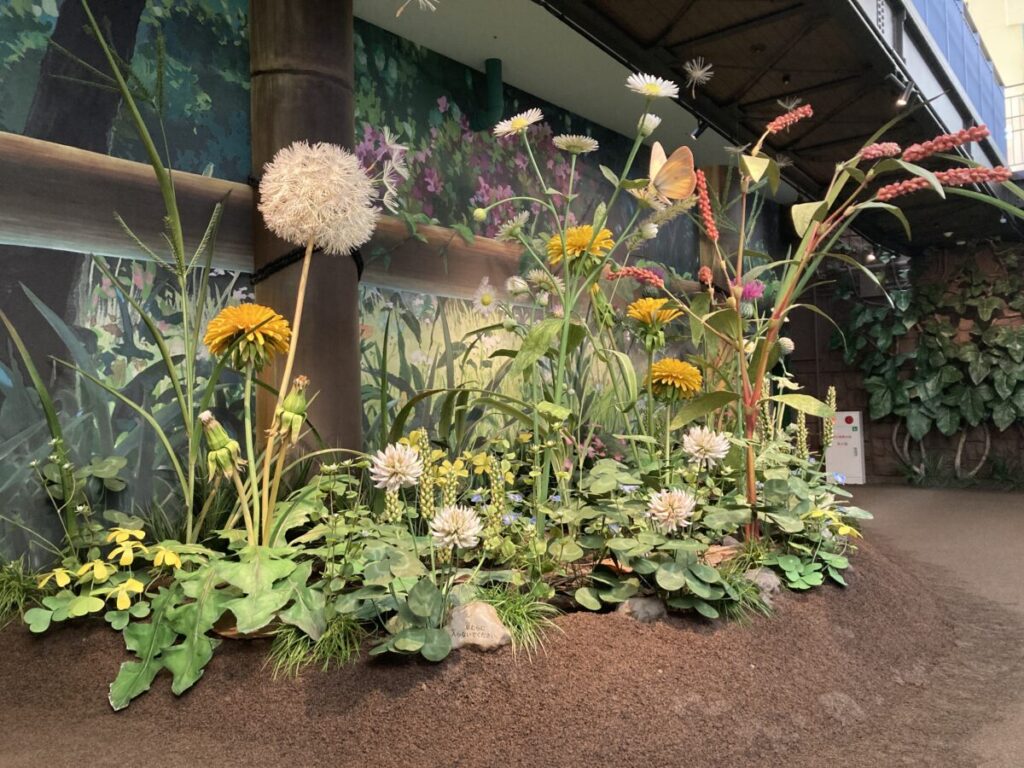
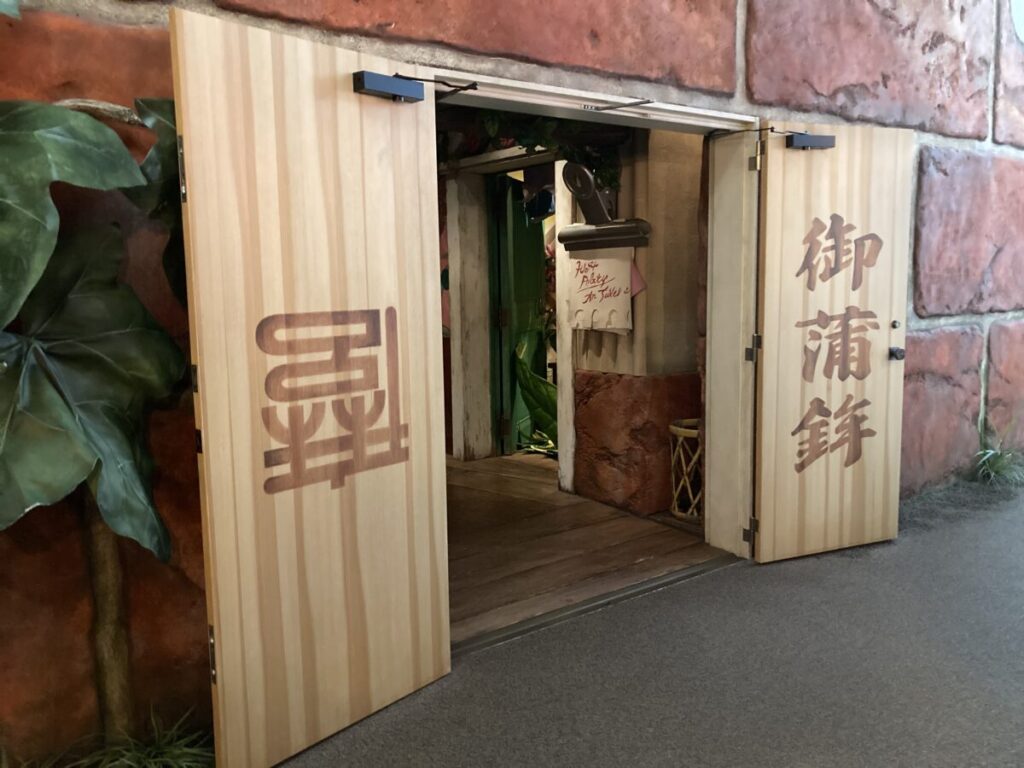
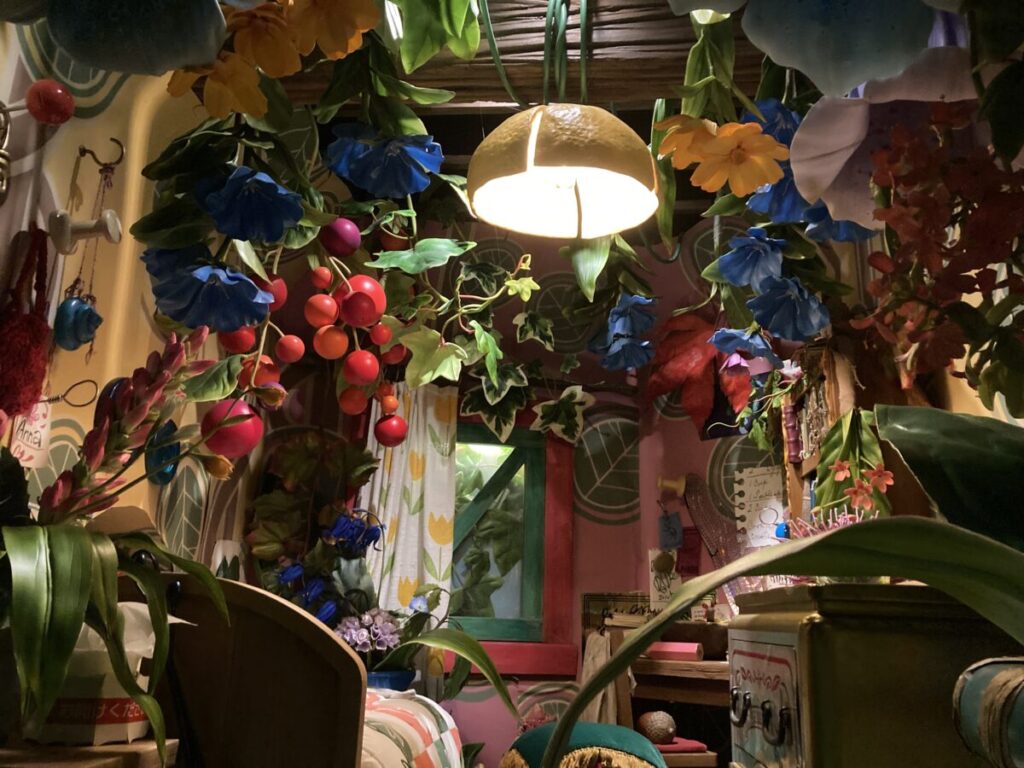
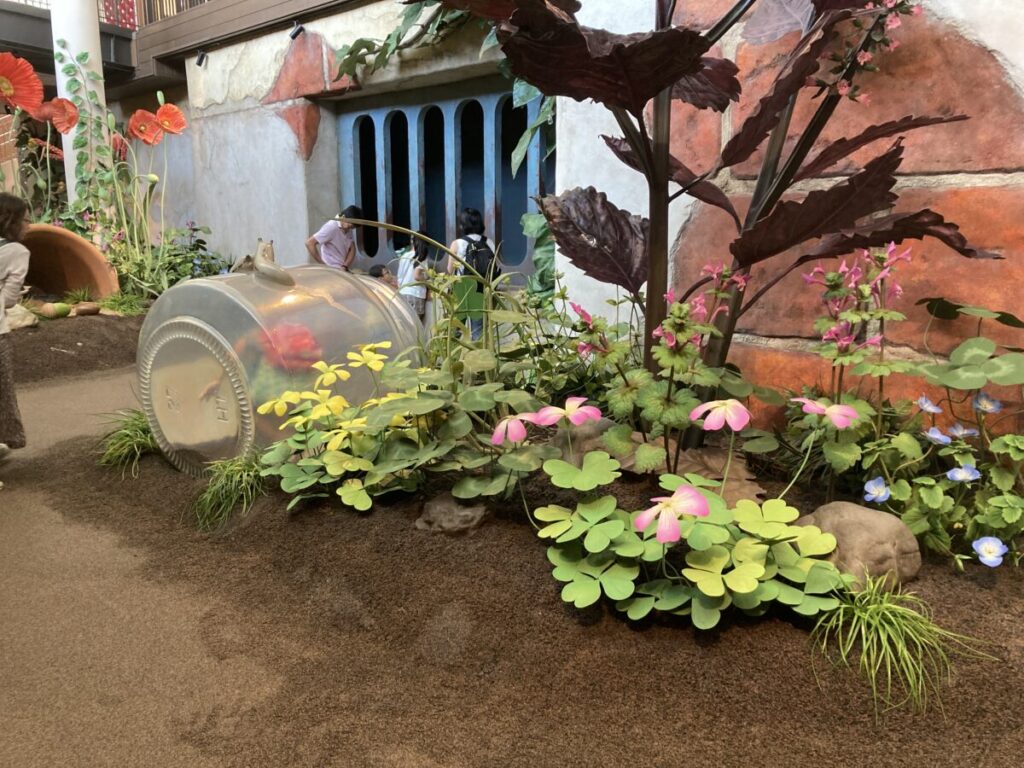
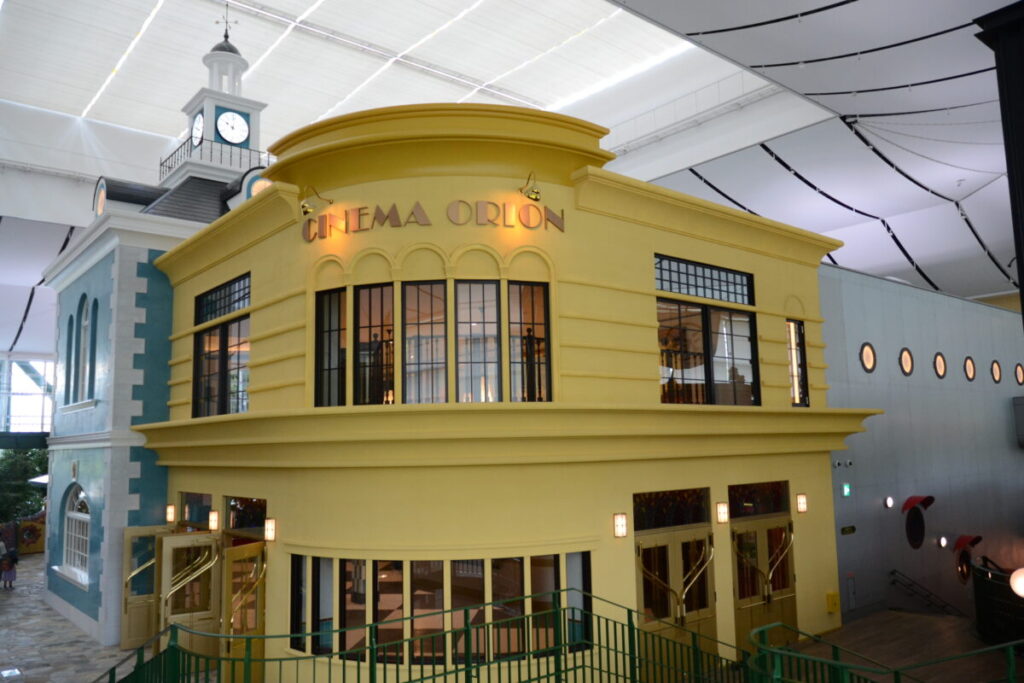
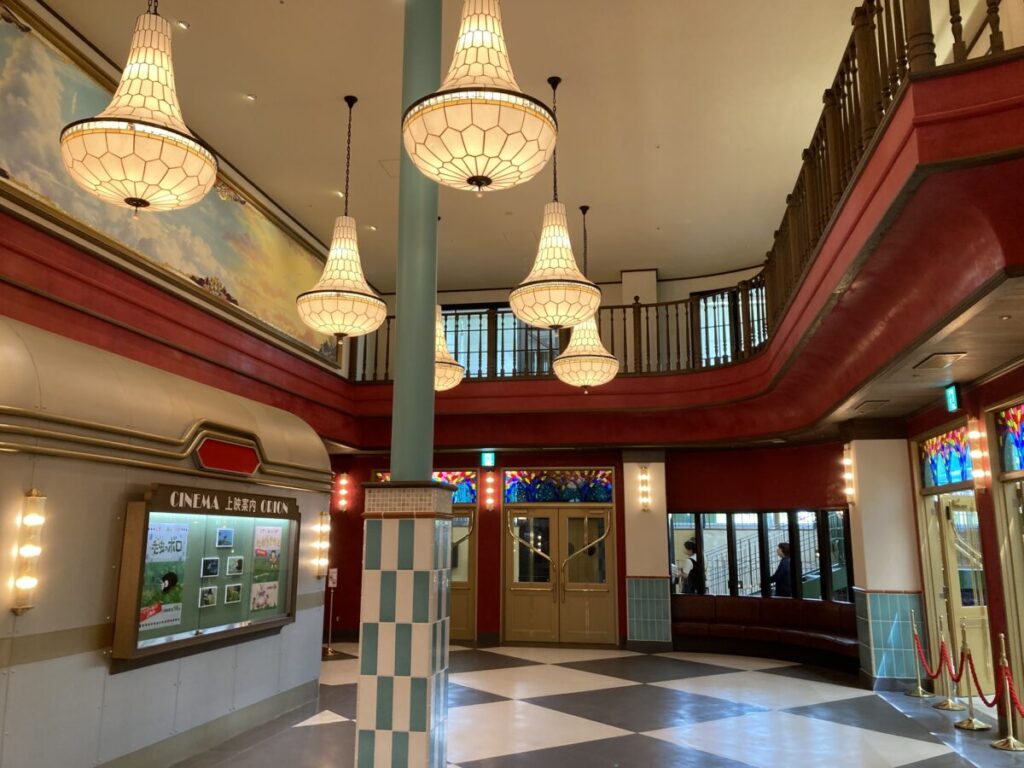
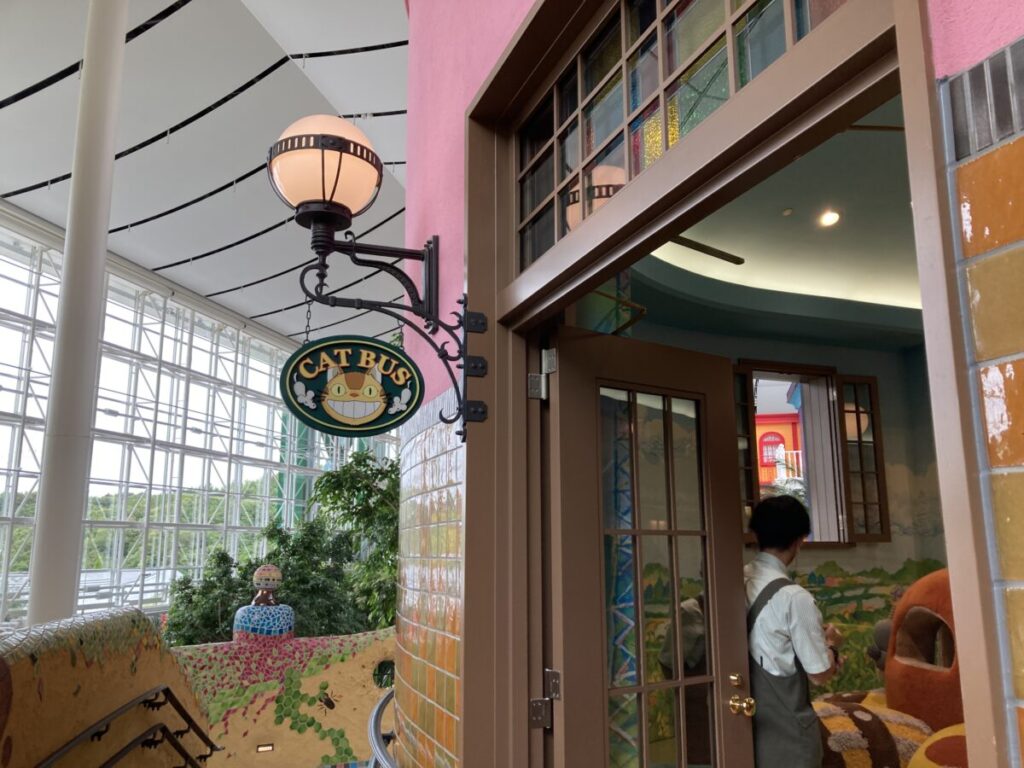
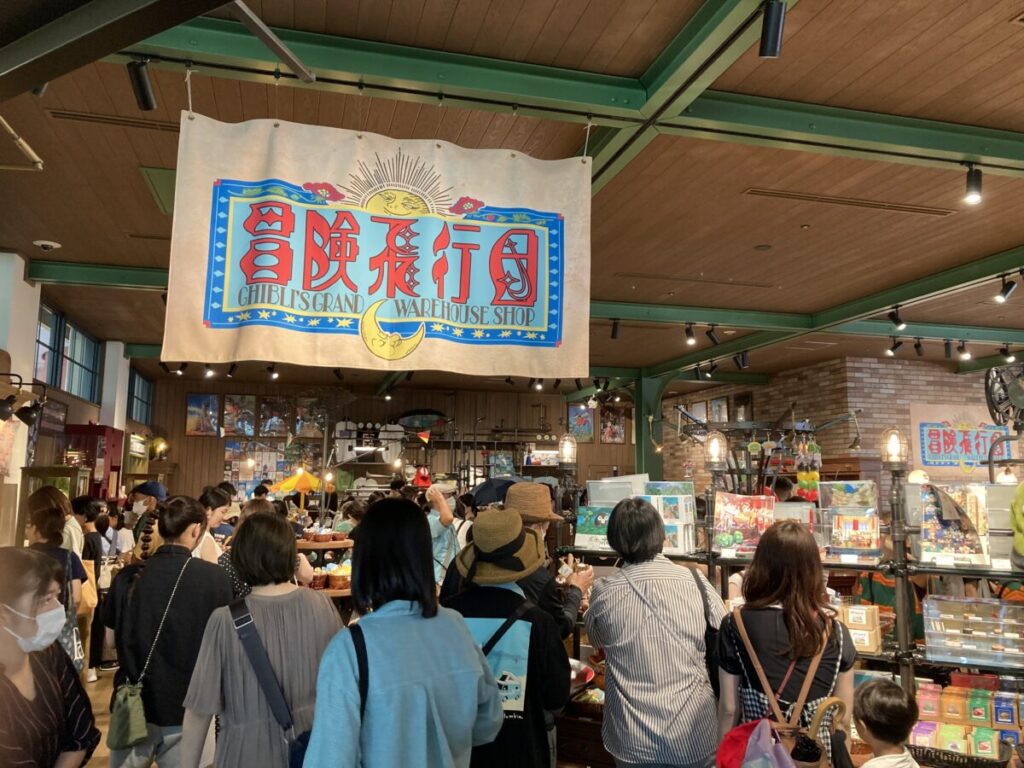
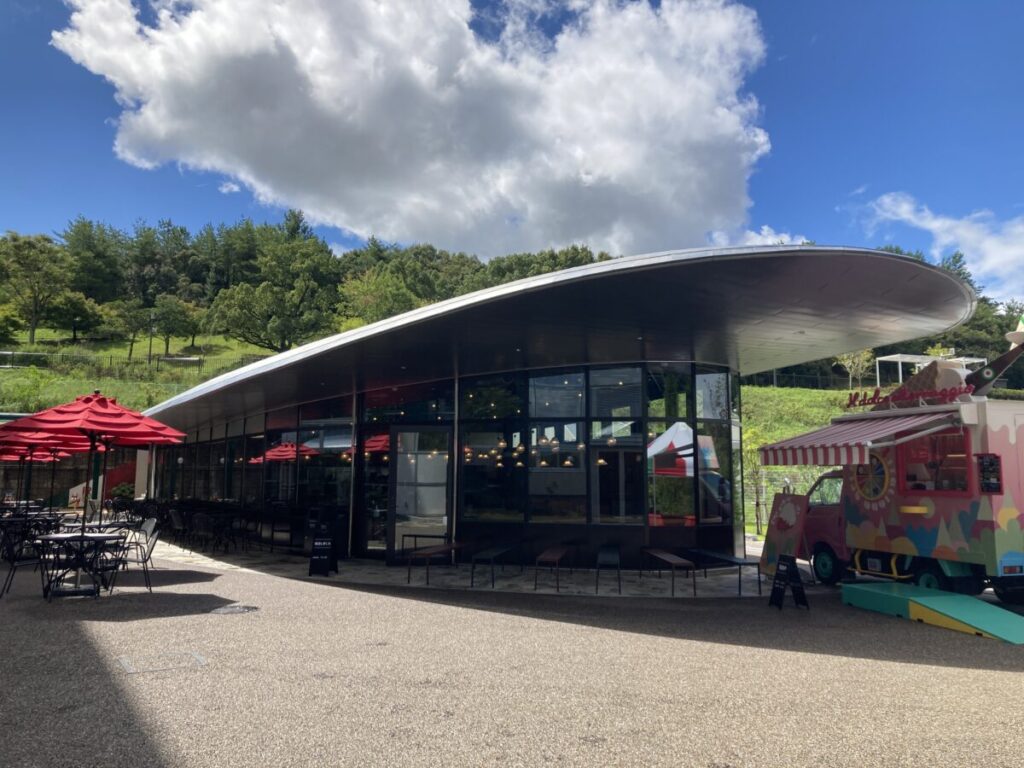


コメント